Editorial Note:
As a digital media and content production company, Applied Worldwide is constantly producing both visual and written content to showcase the versatile and applicability of sociology! This page showcases our original graphics of sociology quotes, which provide a snapshot into the breadth of the discipline. Please feel free to use these graphics in the classroom or on social media, and be sure follow us on Instagram for more original sociology graphics!
Sociology Quotes from Social Theorists
Jean Baudrillard
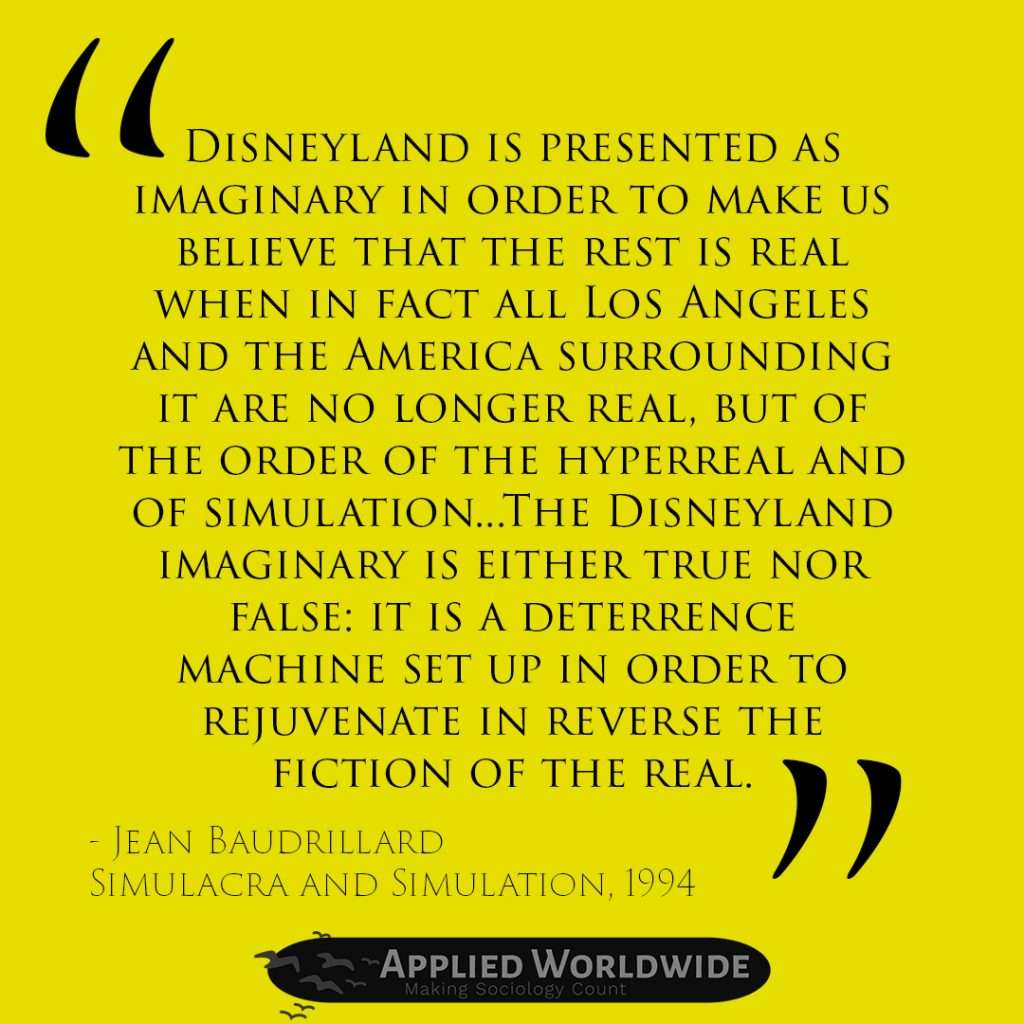
“Disneyland is presented as imaginary in order to make us believe that the rest is real when in fact all Los Angeles and the America surrounding it are no longer real, but of the order of the hyperreal and of simulation…The Disneyland imaginary is either true nor false: it is a deterrence machine set up in order to rejuvenate in reverse the fiction of the real.”
– Jean Baudrillard, Simulacra and Simulation, 1994.
Ulrich Beck

“You need education. You need subsistence projection. We need jobs and social security. These are preconditions under which it will perhaps be possible to deal with these complex circumstances.”
– Ulrich Beck
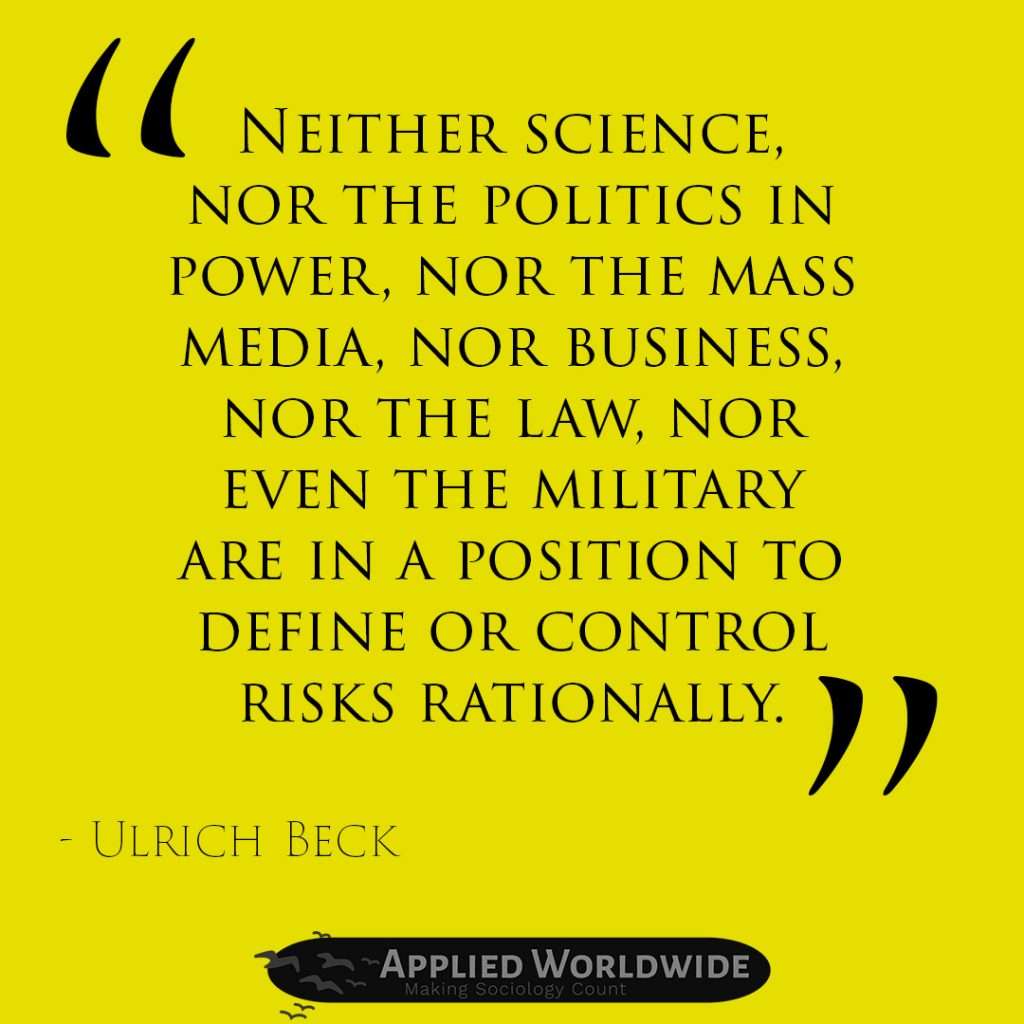
“Neither science, nor the politics in power, nor the mass media, nor business, nor the law, nor even the military are in a position to define or control risks rationally.”
– Ulrich Beck
Howard S. Becker
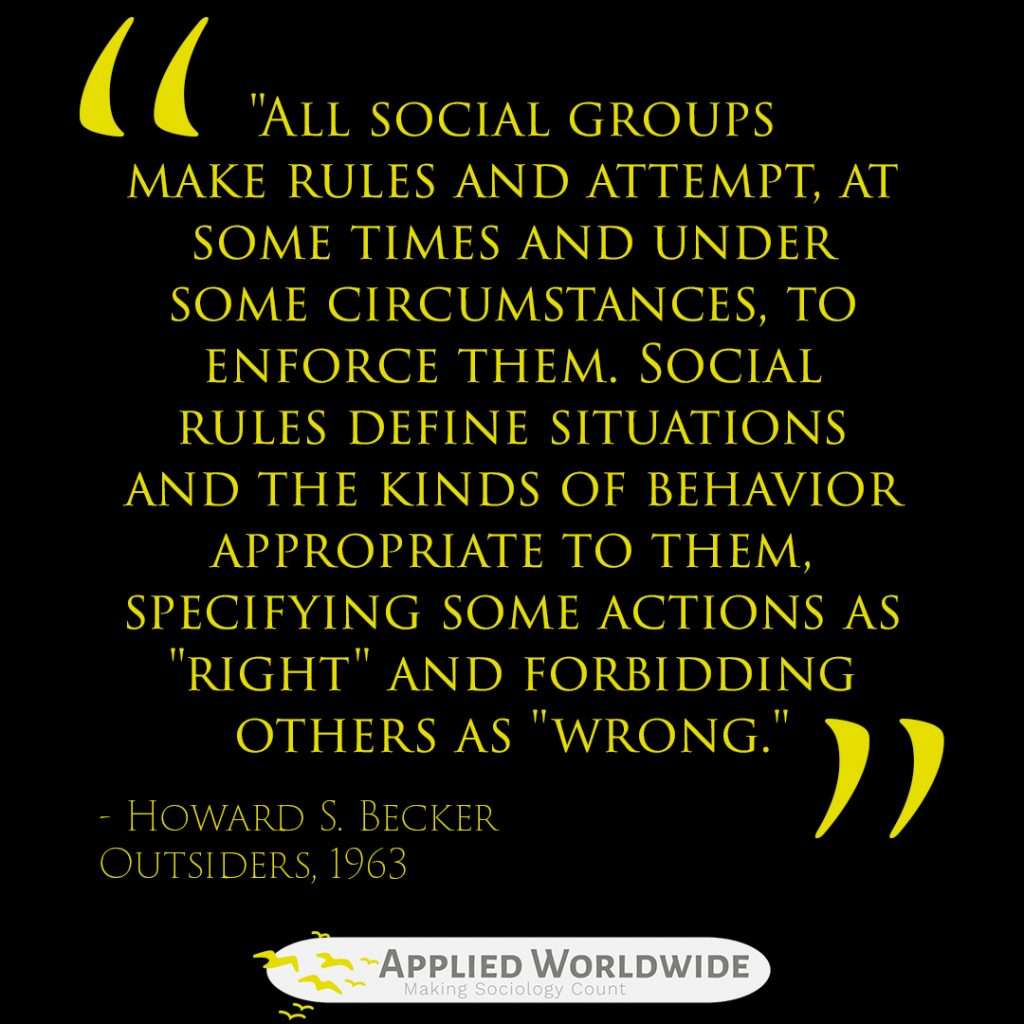
“All social groups makes rules and attempt, at some times and under some circumstances, to enforce them. Social rules define situations and the kinds of behavior appropriate to them, specifying some actions as “right” and forbidding others as “wrong.”
– Howard S. Becker, Outsiders, 1963

“Good sociology is sociological work that produces meaningful descriptions of organizations and events, valid explanations of how they come about and persist, and realistic proposals for their improvement or removal.”
– Howard S. Becker
Pierre Bourdieu
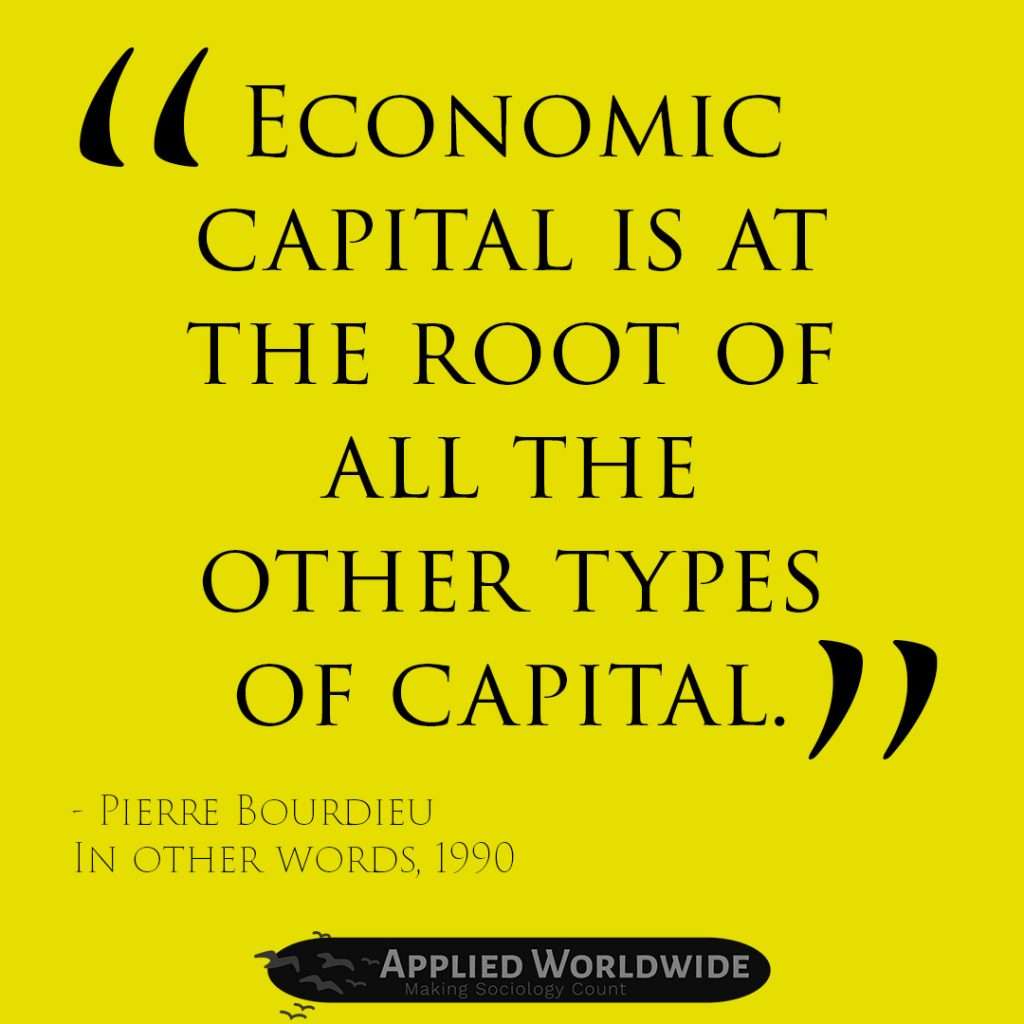
“Economic Capital is at the root of all the other types of capital.”
– Pierre Bourdieu, In Other Words, 1990

“Symbolic violence is violence wielded with tacit complicity between its victims and its agents, insofar as both remain unconscious of submitting to or wielding it.”
– Pierre Bourdieu
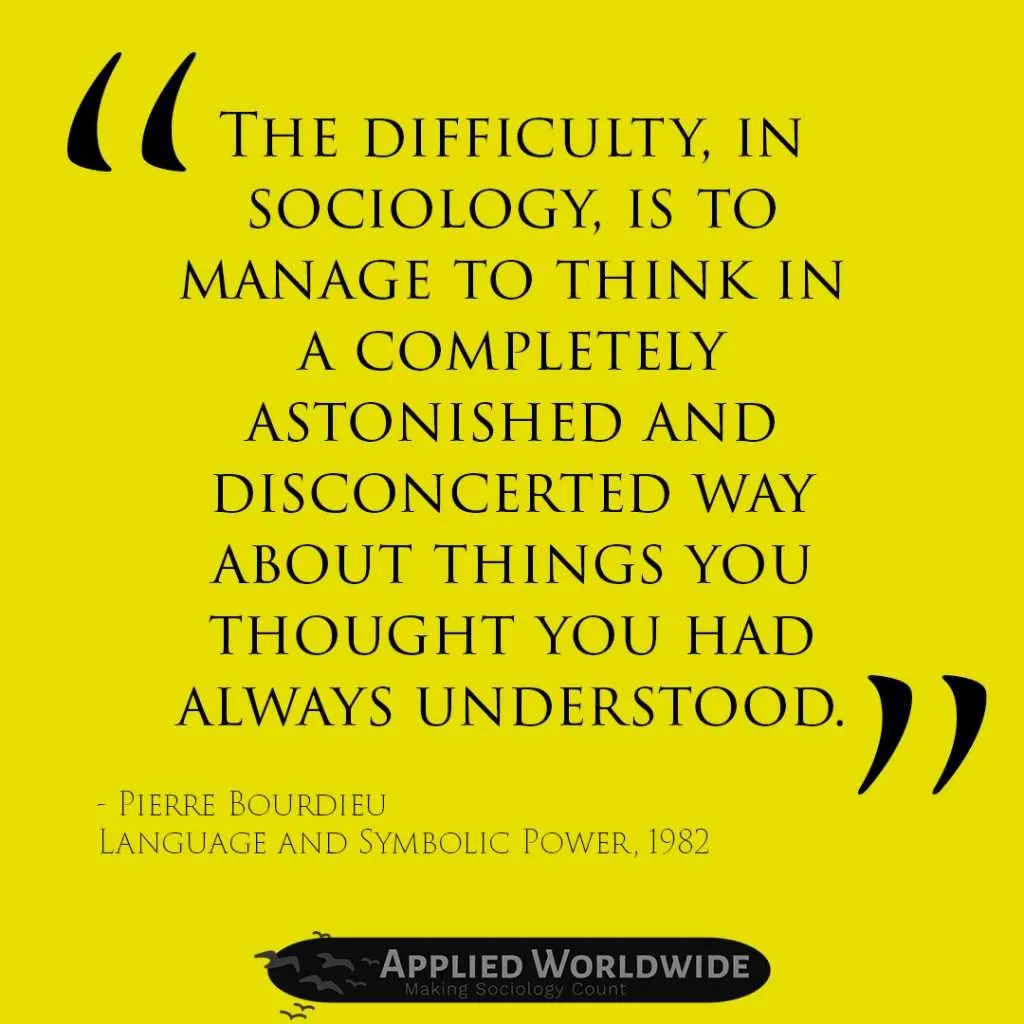
“The difficulty, in sociology, is to manage to think in a completely astonished and disconcerted way about things you thought you had always understood.
– Pierre Bourdieu, Language and Symbolic Power, 1982
Judith Butler
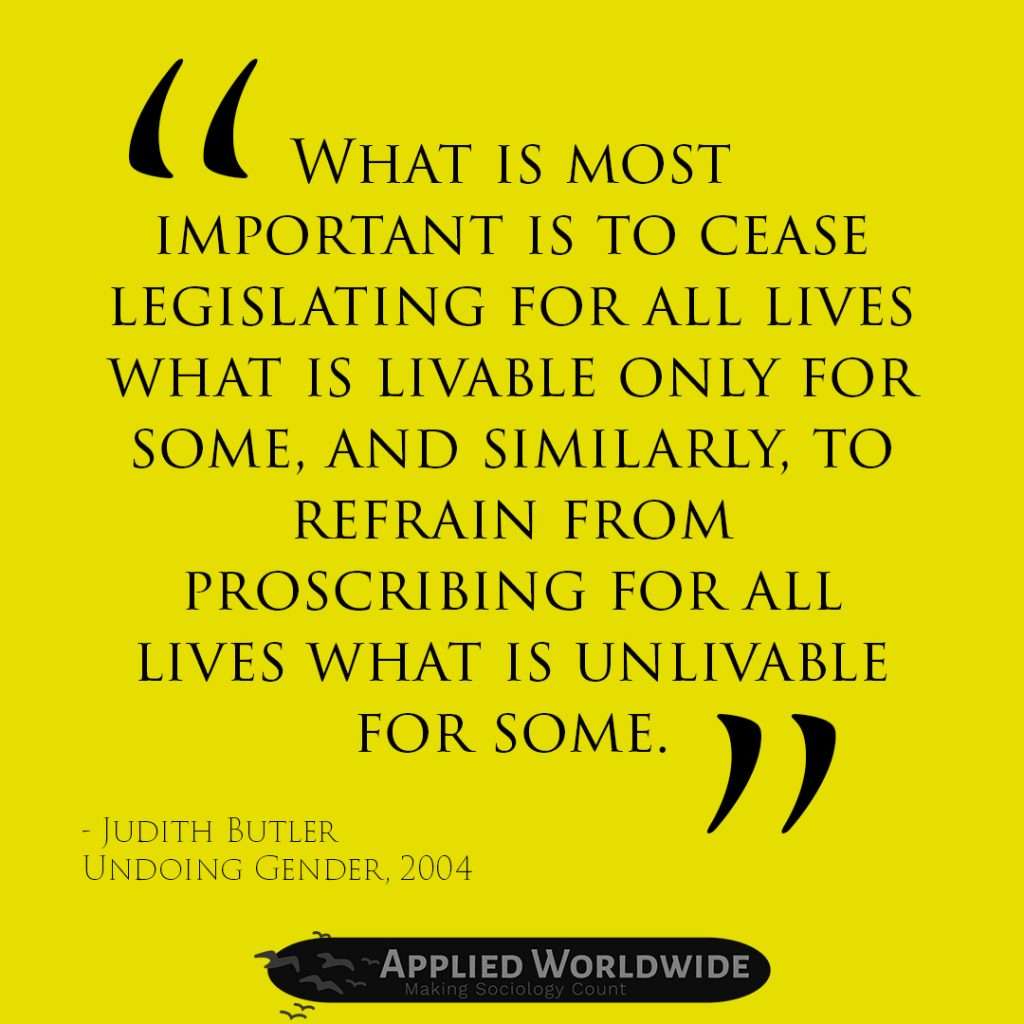
“What is most important is to cease legislating for all lives what is livable only for some, and similarly, to refrain from proscribing for all lives what is unlivable for some.”
– Judith Butler, Undoing Gender, 2004
R. W. Connell
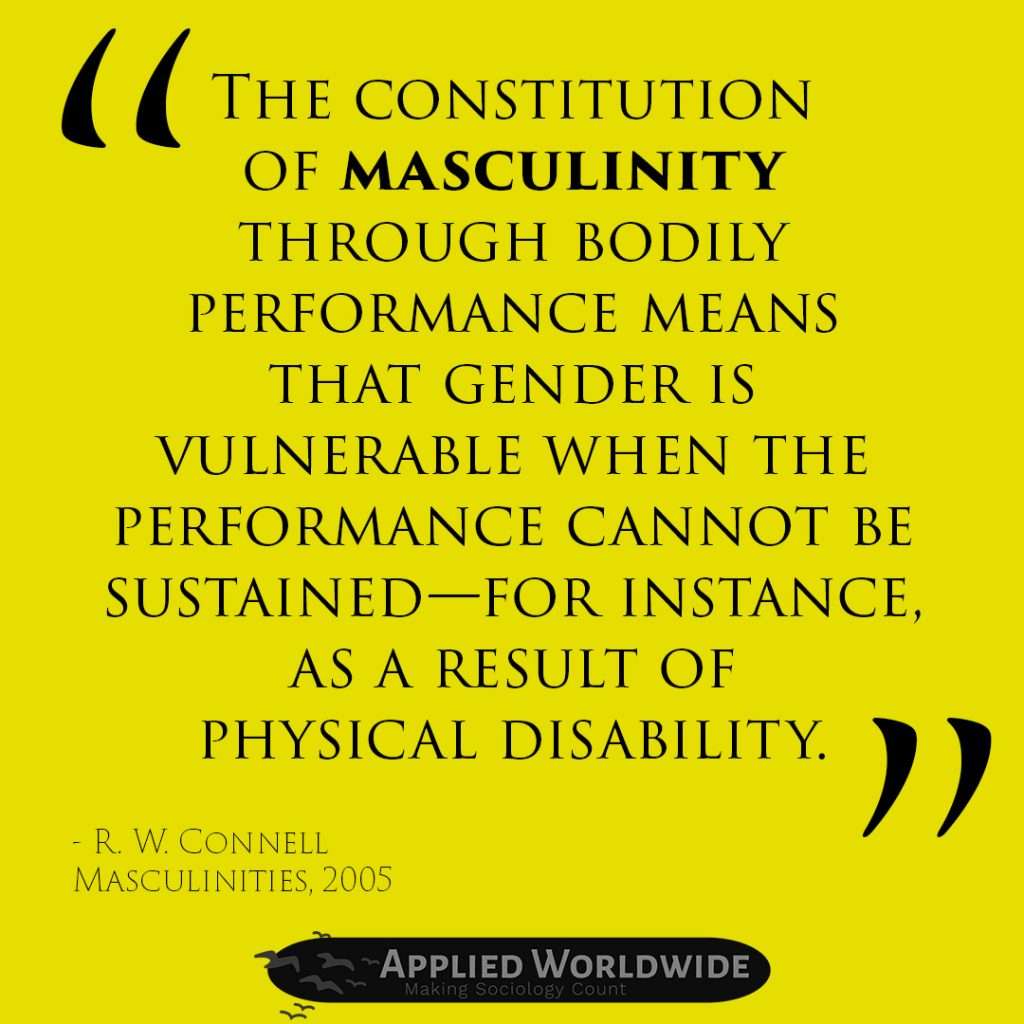
“The constitution of masculinity through bodily performance means that gender is vulnerable when the performance cannot be sustained—for instance, as a result of physical disability.”
– R. W. Connell, Masculinities, 2005
W. E. B. DuBois
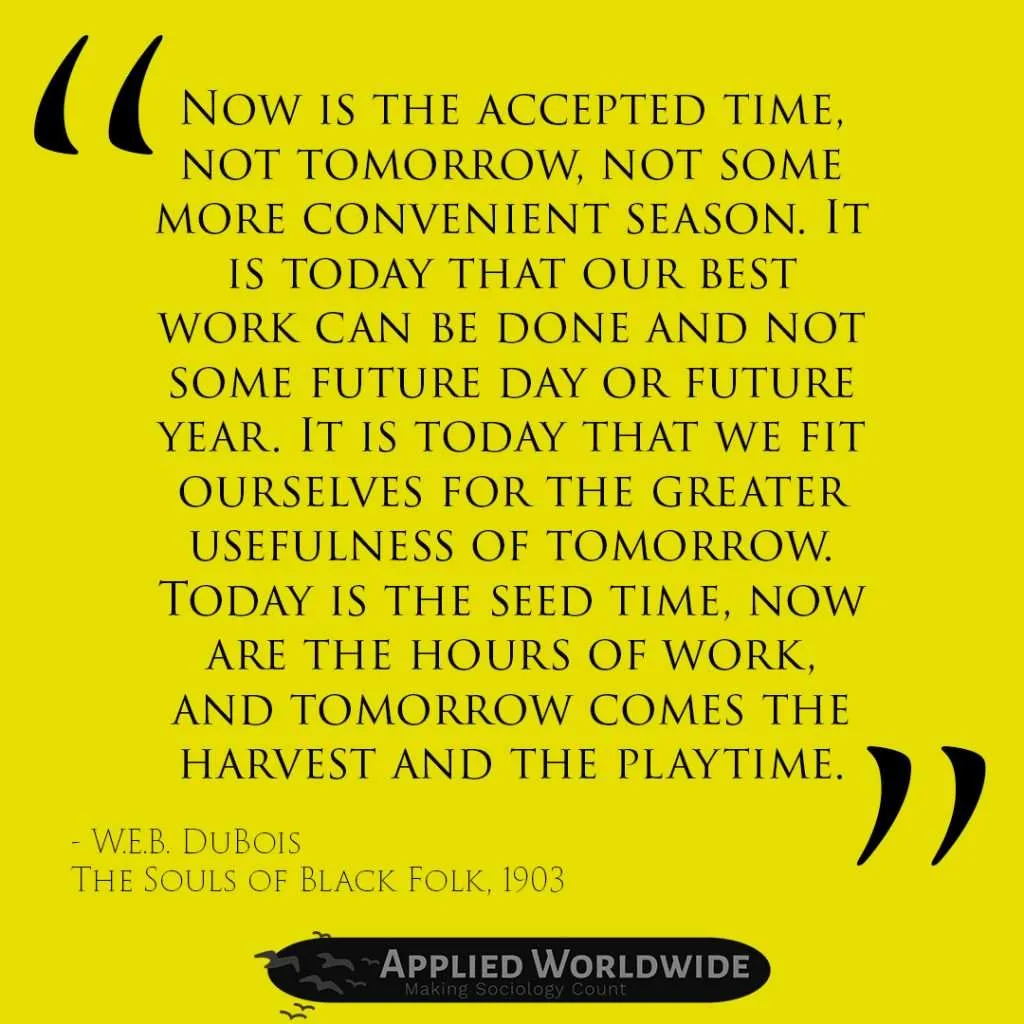
“Now is the accepted time ,not tomorrow, nor some more convenient season. It is today that our best work can be done and not some future day or future year. It is today that we fit ourselves for the greater usefulness of tomorrow. Today is the seed time, now are the hours to work, and tomorrow comes the harvest and the playtime.”
– W. E. B. DuBois, The Souls of Black Folk, 1903
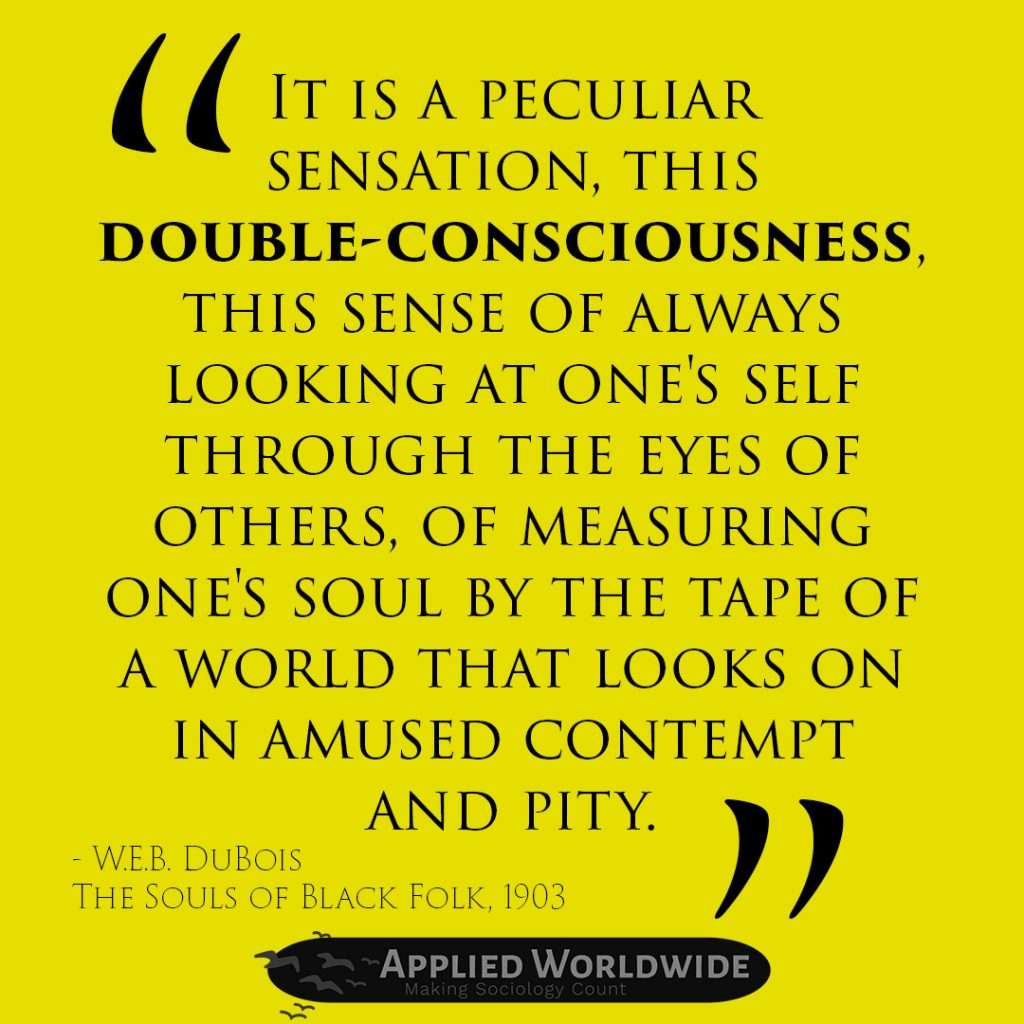
“It is a peculiar sensation, this double-consciousness, this sense of always looking at one’s self through the eyes of others, or measuring one’s soul by the tape of a world that looks on in amused contempt and pity.”
– W. E. B. DuBois, The Souls of Black Folk, 1903
Émile Durkheim
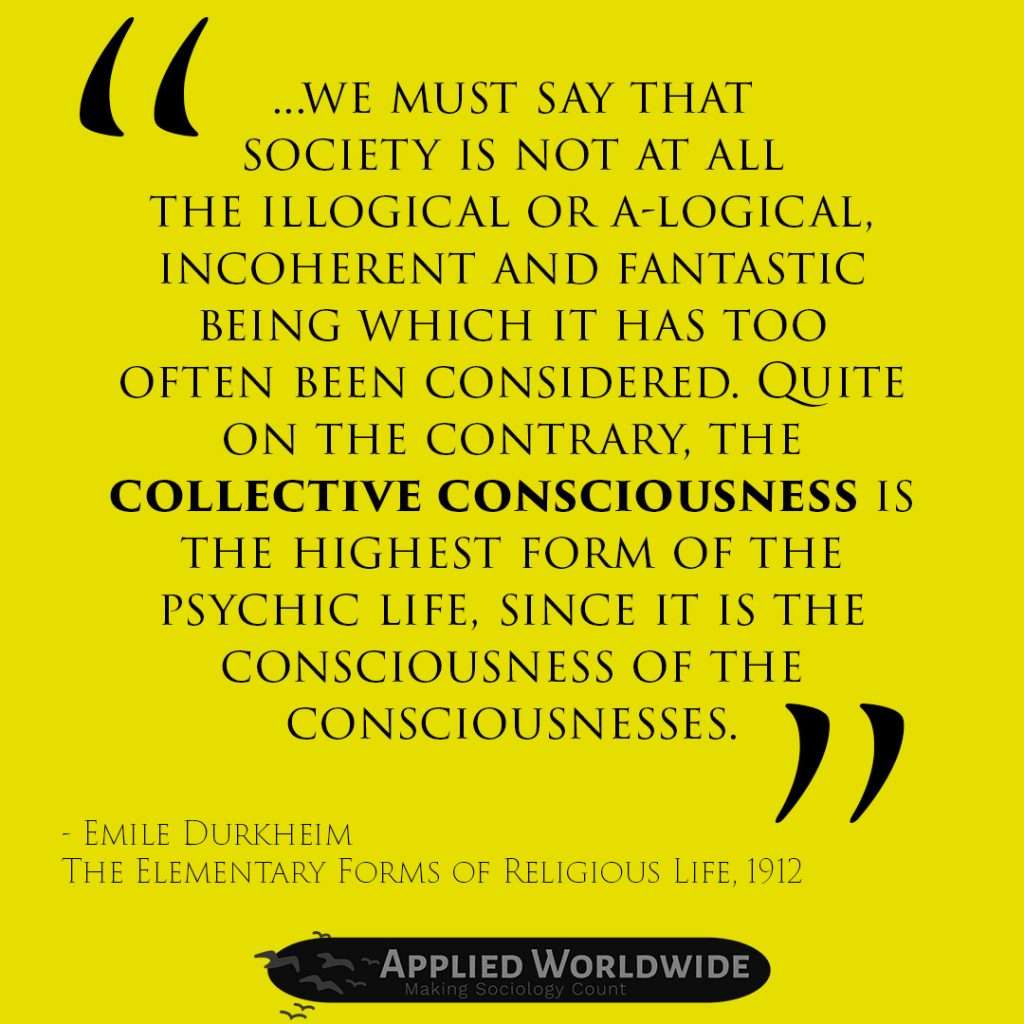
“Soviet is not at all the illogical or a-logical incoherent and fantastic being which is had too often been considered. Quite on the contrary, the collective consciousness is the highest form of the psychic life, since it is the consciousness of the consciousness.”
– Emile Durkheim, The Elementary Forms of Religious Life, 1912
Michel Foucault
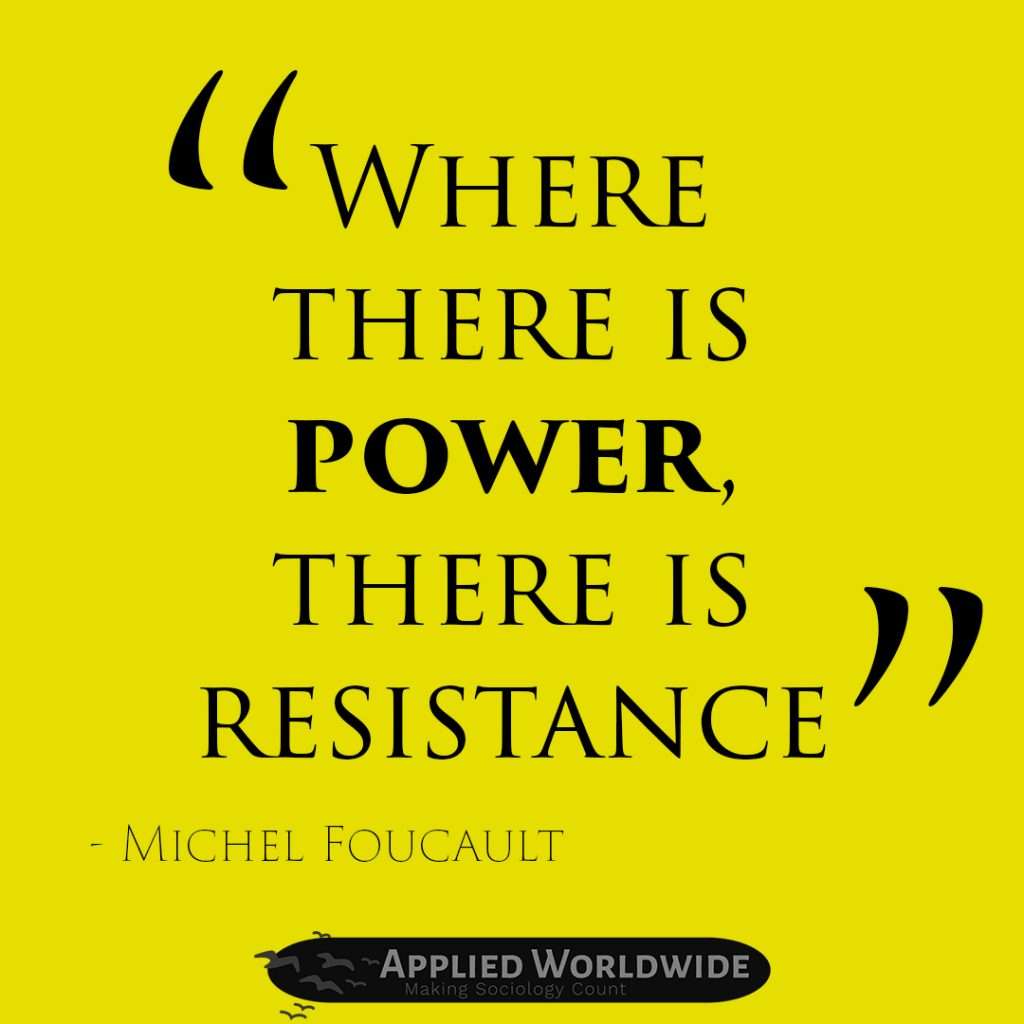
“Where there is power, there is resistance.”
– Michel Foucault

“Schools serve the same social functions as prisons and mental institutions—to define, classify, control, and regulate people.”
– Michel Foucault
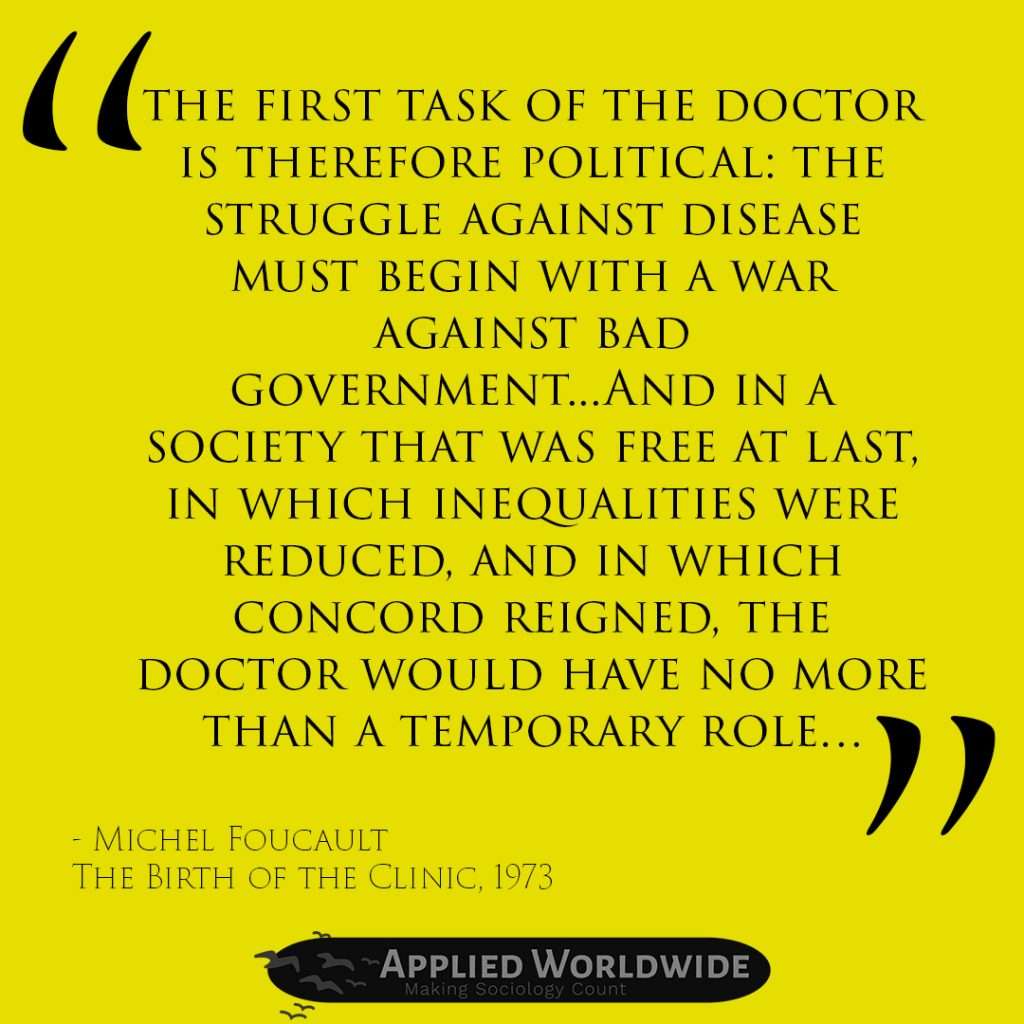
“The first task of the doctor is therefore political: the struggle against disease must begin with a war against bad government…And in a society that was free at last, in which inequalities were reduced, and in which concord reigned, the doctor would have not more than a temporary role…”
– Michel Foucault, The Birth of the Clinic, 1973
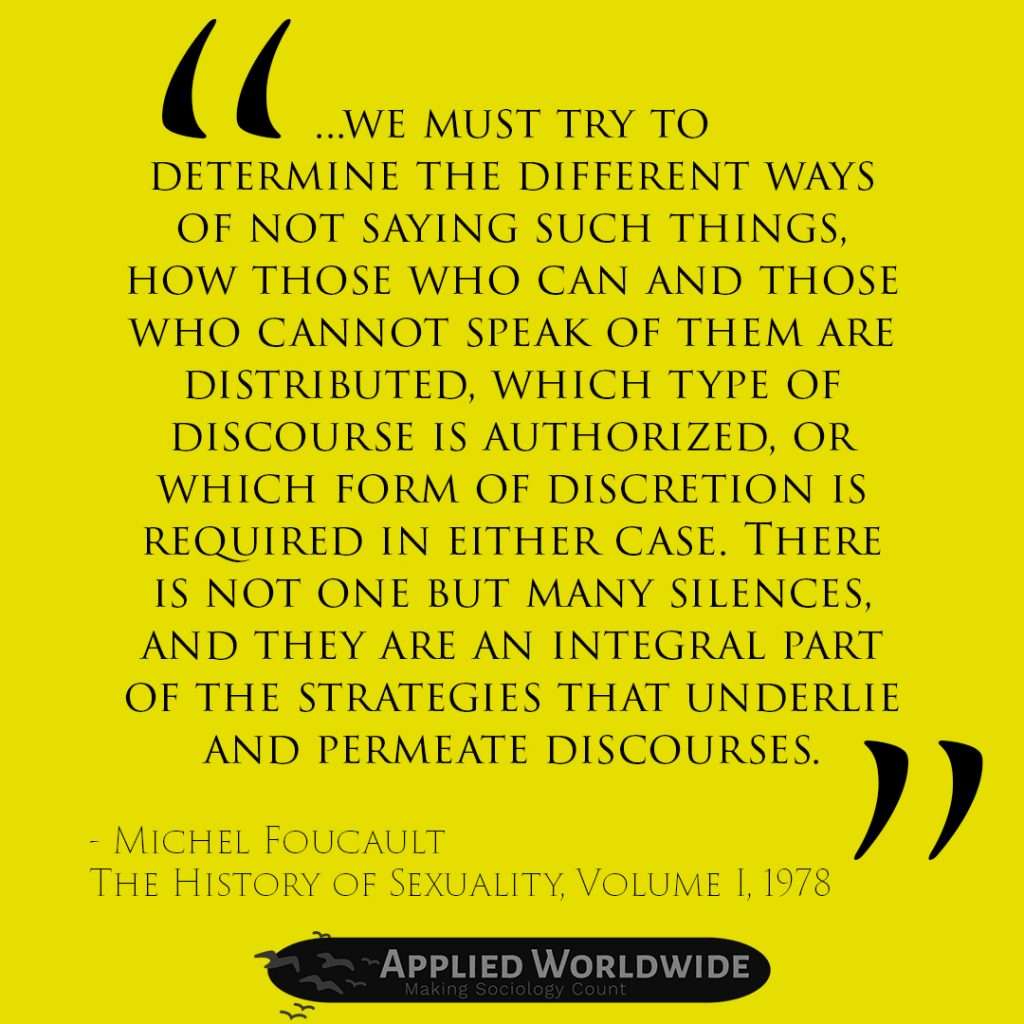
“…we must try to determine the different ways of not saying such things, how those who can and those who cannot speak of them are distributed, which type of discourse is authorized, or which form of discretion is required in either case. There is not one but many silences, and they are an integral part of the strategies that underlie and permeate discourses.
– Michel Foucault, The History of Sexuality, Volume I, 1978
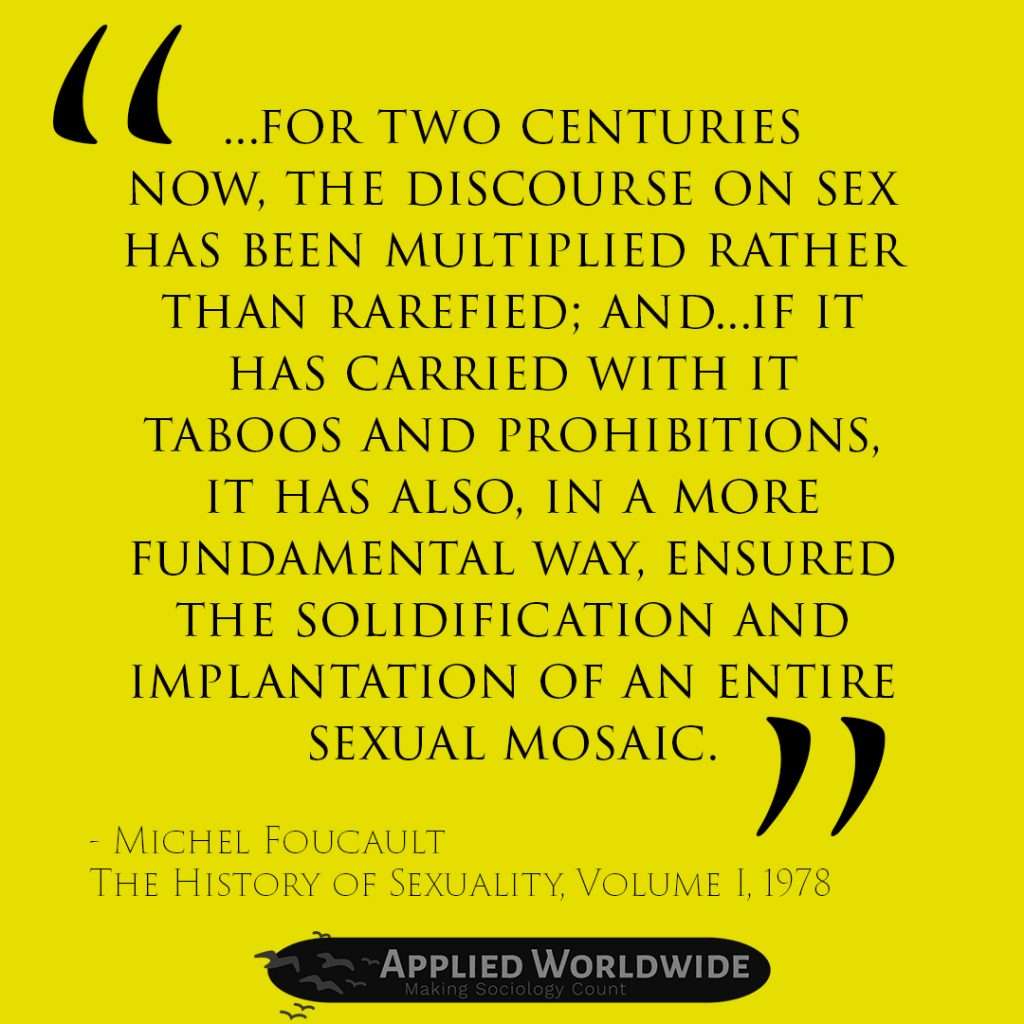
“…for two centuries now, the discourse on sex has been multiplied rather than rarefied; and…if it has carried with it taboos and prohibitions, it has also, in a more fundamental way, ensured the solidification and implantation of an entire sexual mosaic.”
Eliot Freidson
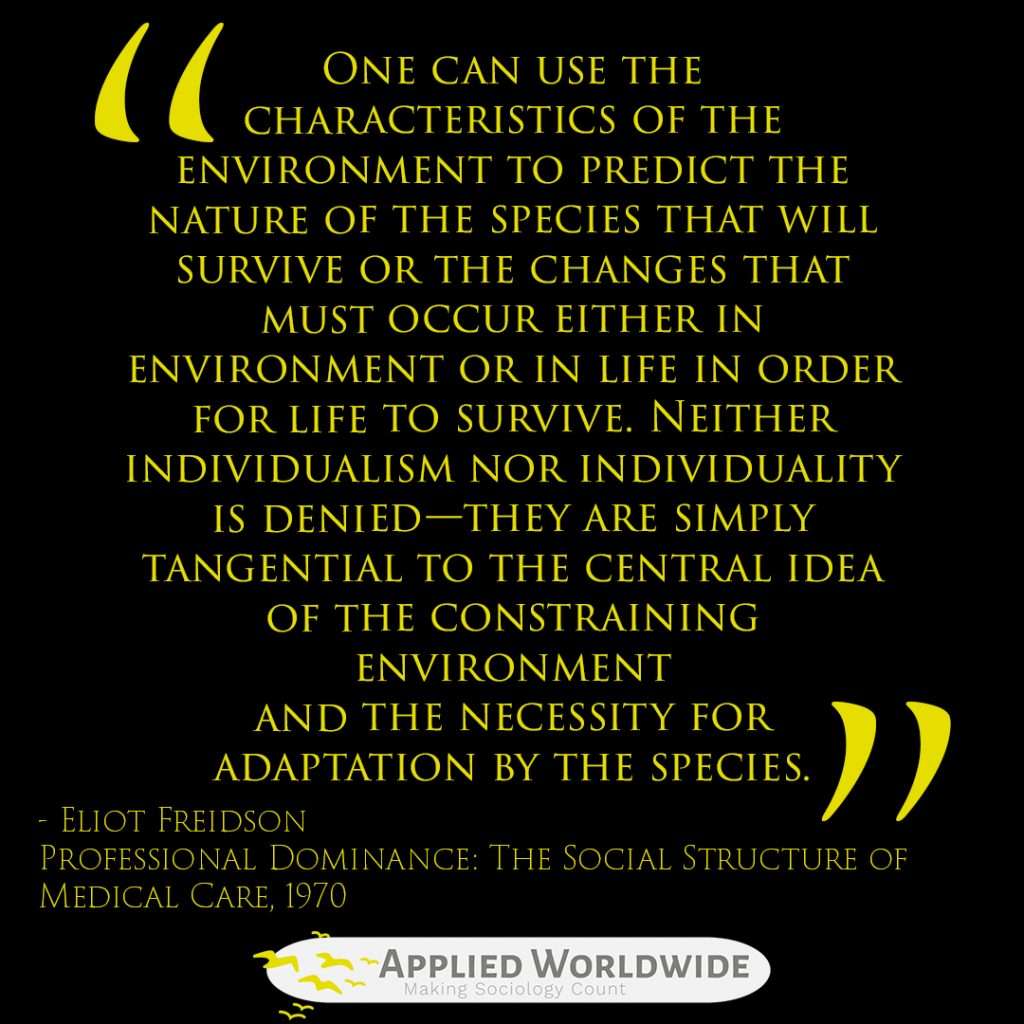
“One can use the characteristics of the environment to predict the nature of the species that will survive or the changes that must occur either in environment or in life on order for life to survive. Neither individualism not individuality is denied—they are simply tangential to the central idea of the constraining environment and the necessity for adaptation by the species.”
– Eliot Freidson, Professional Dominance: The Social Structure of Medical Care, 1970
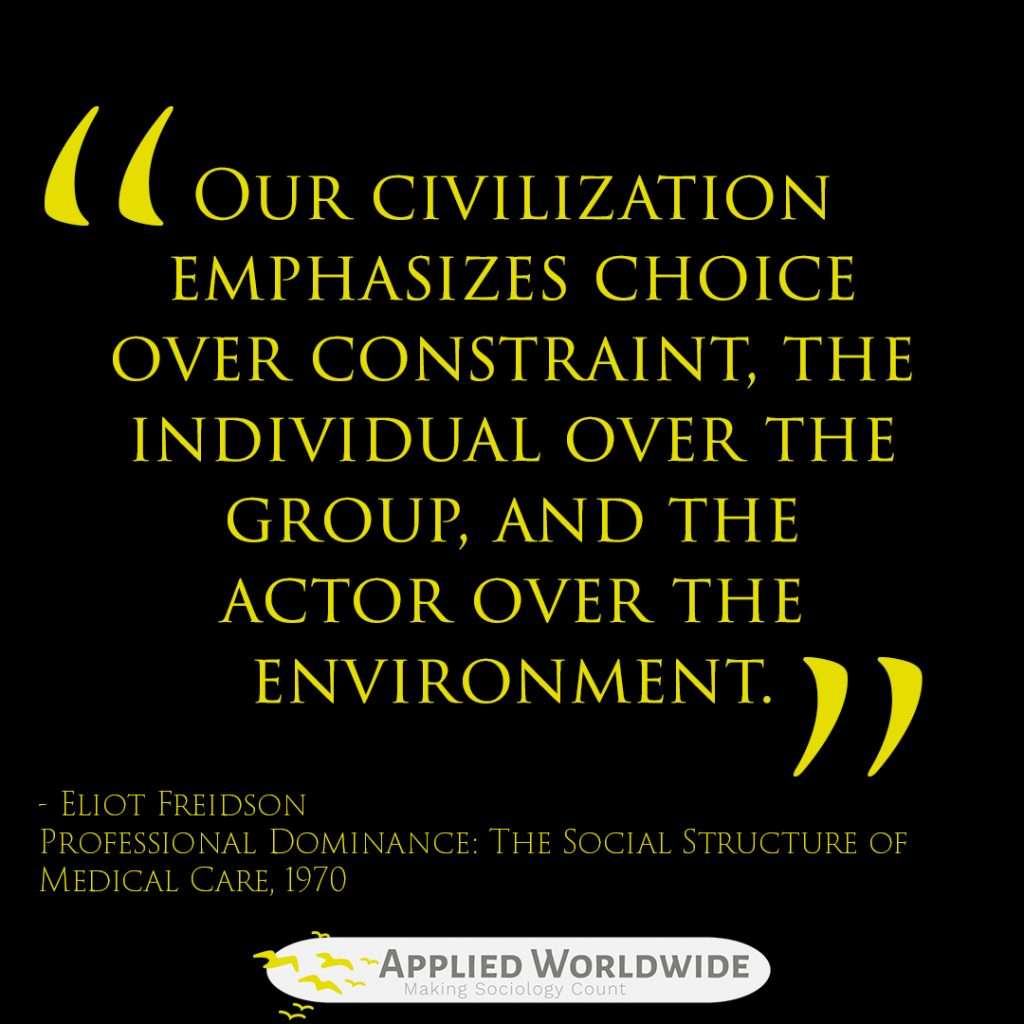
“Our civilization emphasizes choice over constraint, the individual over the group, and the actor over the environment.”
– Eliot Freidson, Profession Dominance: The Social Structure of Medical Care, 1970
Jan M. Fritz

“The history of this brand field [clinical sociology] begins with individuals who combine a scientific approach to social life with an involvement in intervention work.”
– Jan M. Fritz, The History of Clinical Sociology, 1989
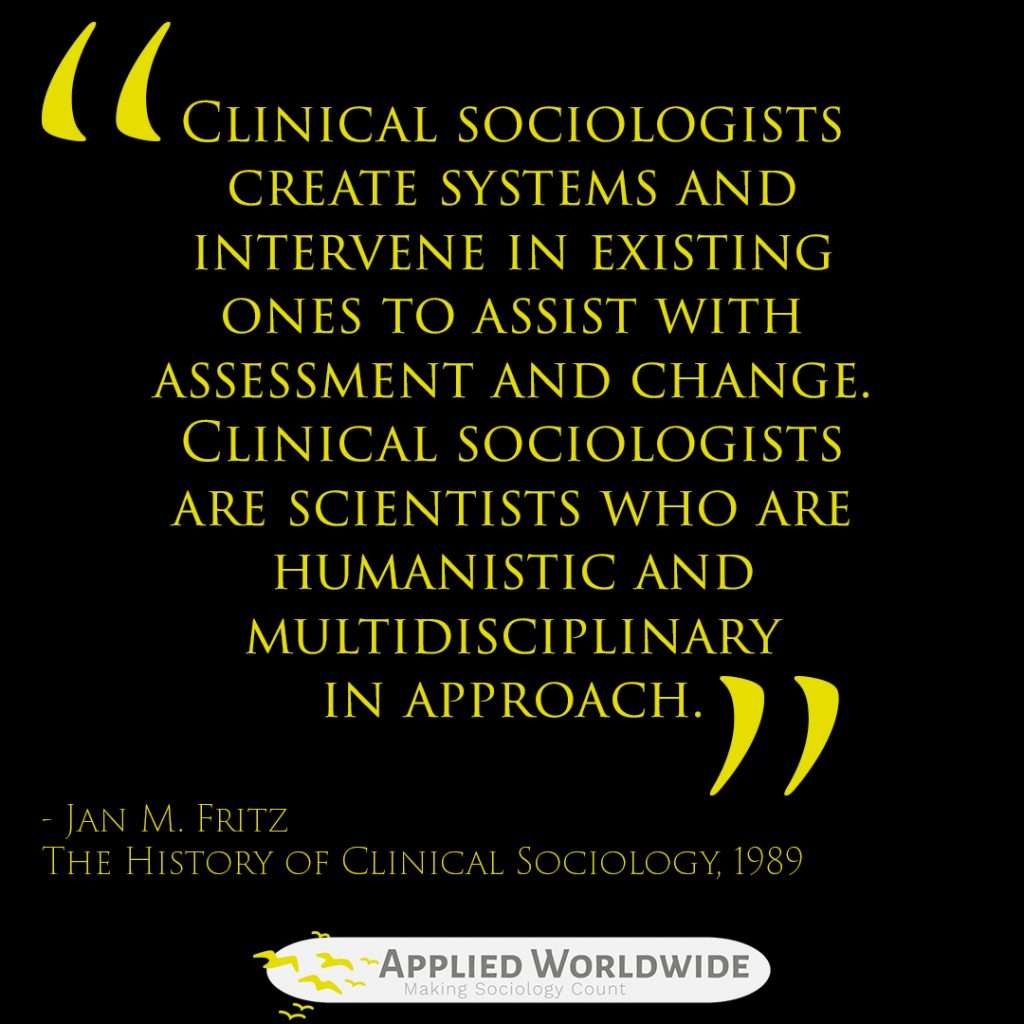
“Clinical sociologists create systems and intervene in existing ones to assist with assessment and change. Clinical sociologists are scientists who are humanistic and multidisciplinary in approach.”
– Jan M. Fritz, The History of Clinical Sociology, 1989
Harold Garfinkel

“Sociologists are like goldfish swimming in a bowl, confidently analysis other goldfish.”
– Harold Garkfinkel
Anthony Giddens
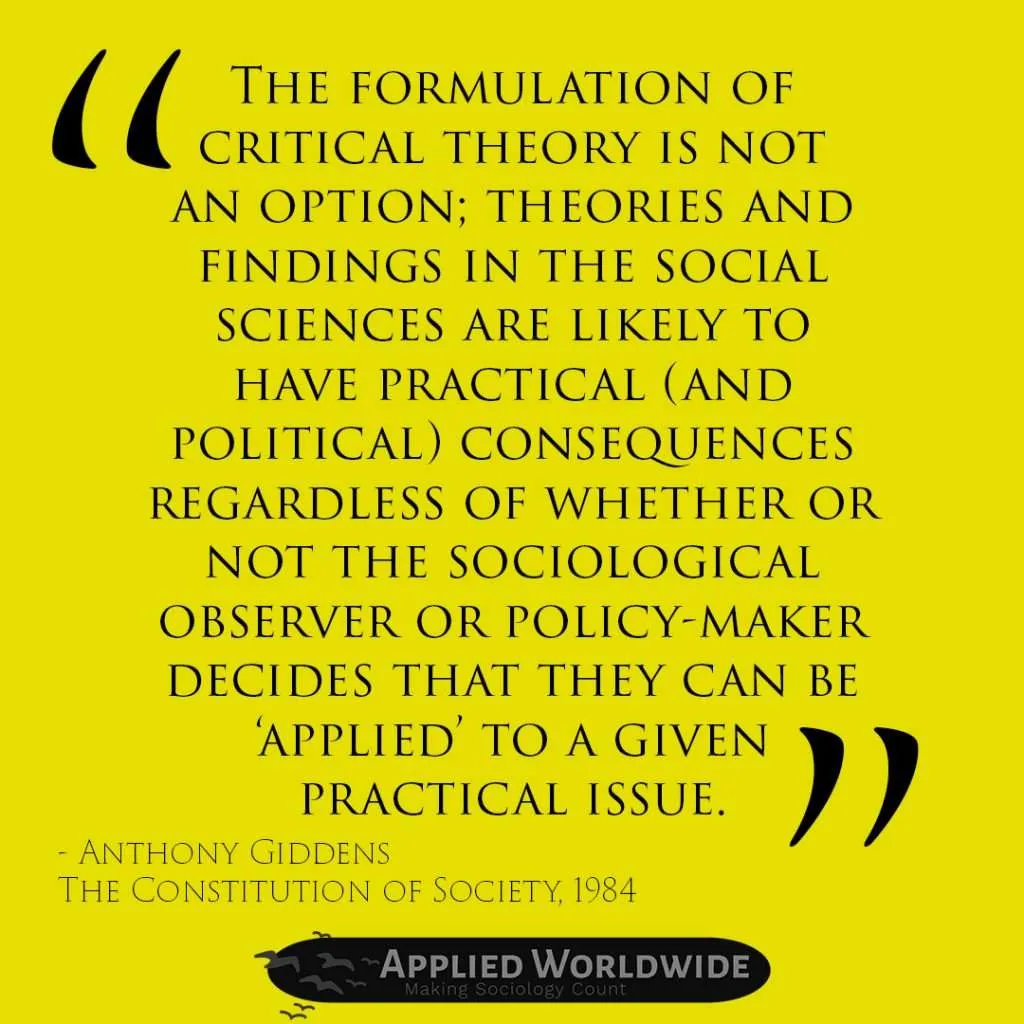
“The formulation of critical theory is not an option; theories and findings in the social sciences are likely to have practice (and political) consequences regardless of whether or not the sociological observer or policy-maker decides that they can be ‘applied’ to a given practical issue.”
– Anthony Giddens, The Constitution of Society, 1984
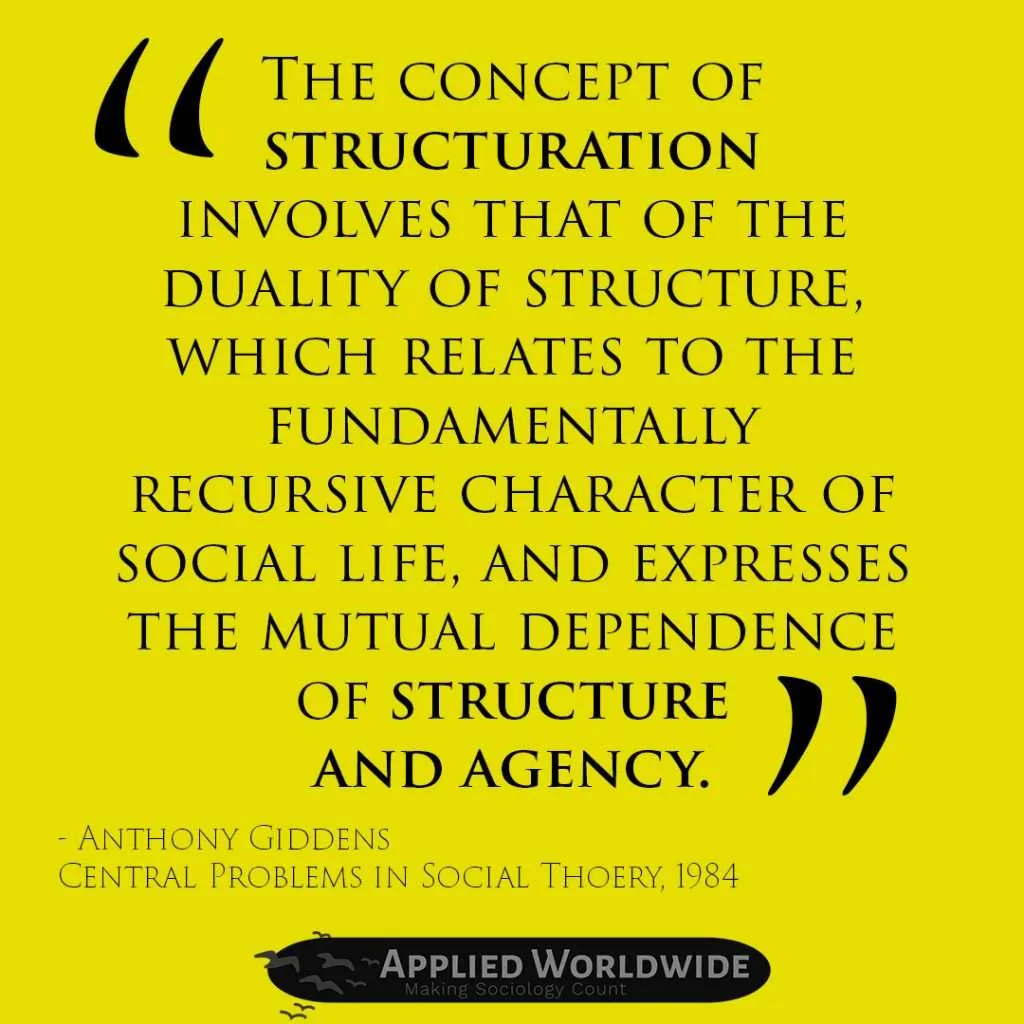
“The concept of structuration involves that of the duality of structure, which relates to the fundamentally recursive character of social life, and expresses the mutual dependence of structure and agency.”
– Anthony Giddens, Central Problems in Social Theory, 1984
Charlotte Perkins Gilman
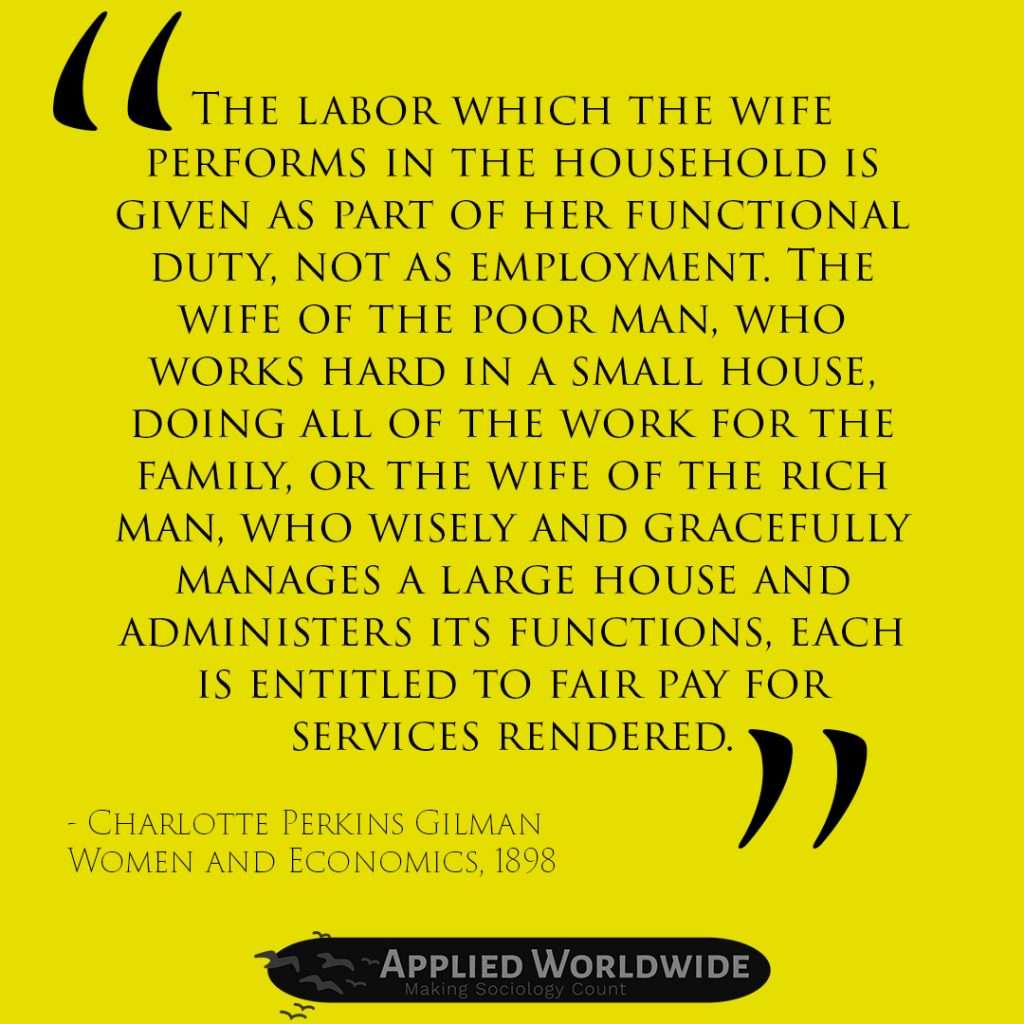
“The labor which the wife performs in the household is given as part of her functional duty, not as employment. The wife of the poor man, who works hard in a small house, doing all of the work for the family, or the wife of the rich man, who wisely and gracefully manages a large house and administers its functions, each is entitled to fair pay for services rendered.
– Charlotte Perkins Gilman, Women and Economics, 1898
Patricia Hill Collins
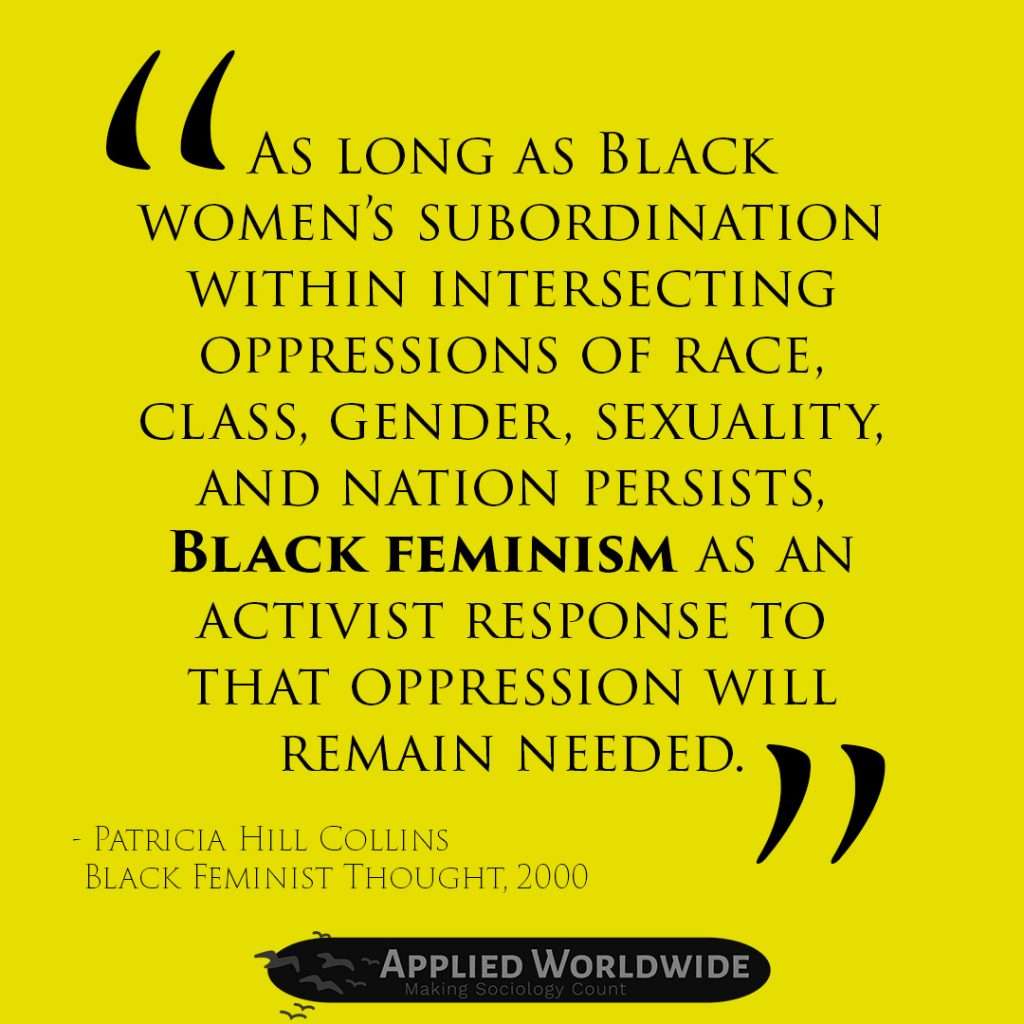
“As long as Black women’s subordination within intersecting oppressions of race, class, gender, sexuality, and nation persists, Black feminism as an activist response to that oppression will remain needed.”
– Patricia Hill Collins, Black Feminist Thought, 2000
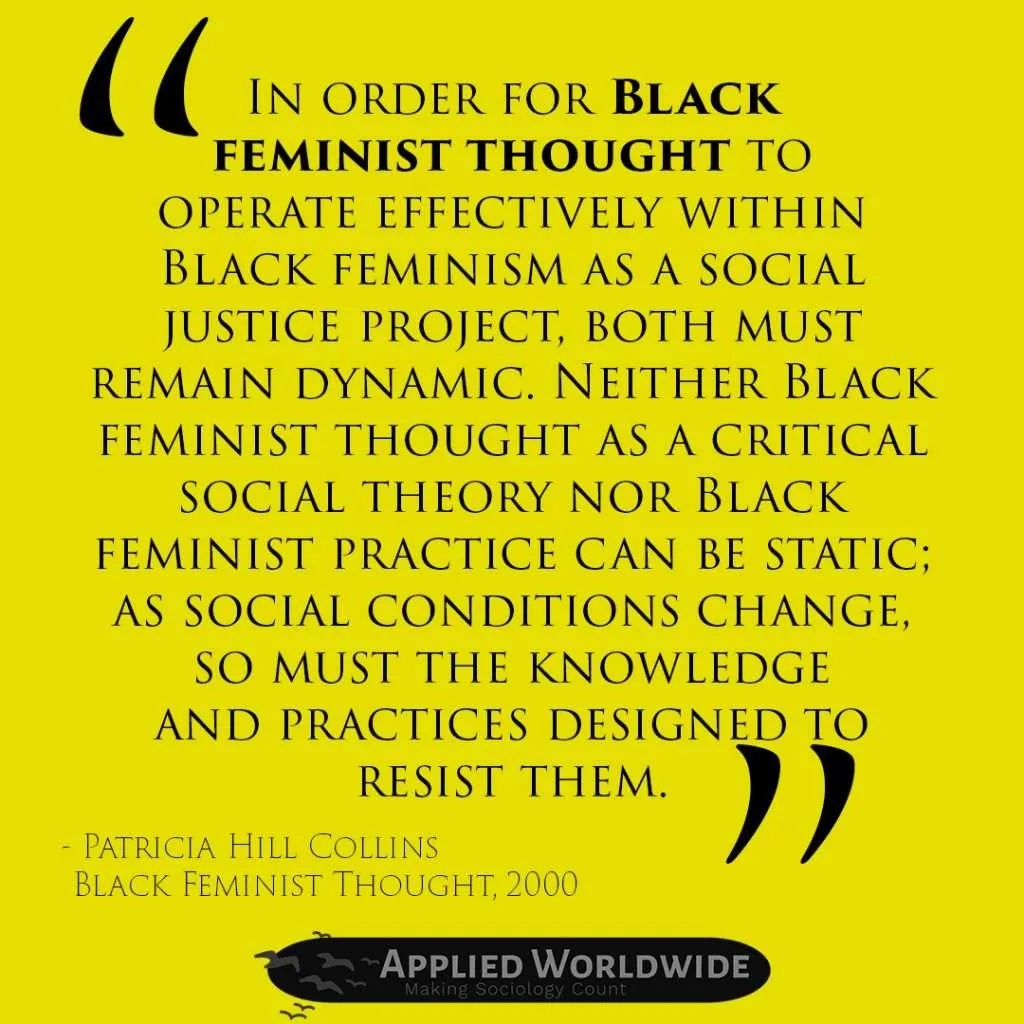
“In order for Black feminist thought to operate effectively within Black feminism as a social justice project, both must remain dynamic. Neither Black feminist thought as a critical social theory nor Black feminist practice can be static; as social conditions change, so much the knowledge and practices designed to resist them.”
– Patricia Hill Collins, Black Feminist Thought, 2000
Andre Lorde
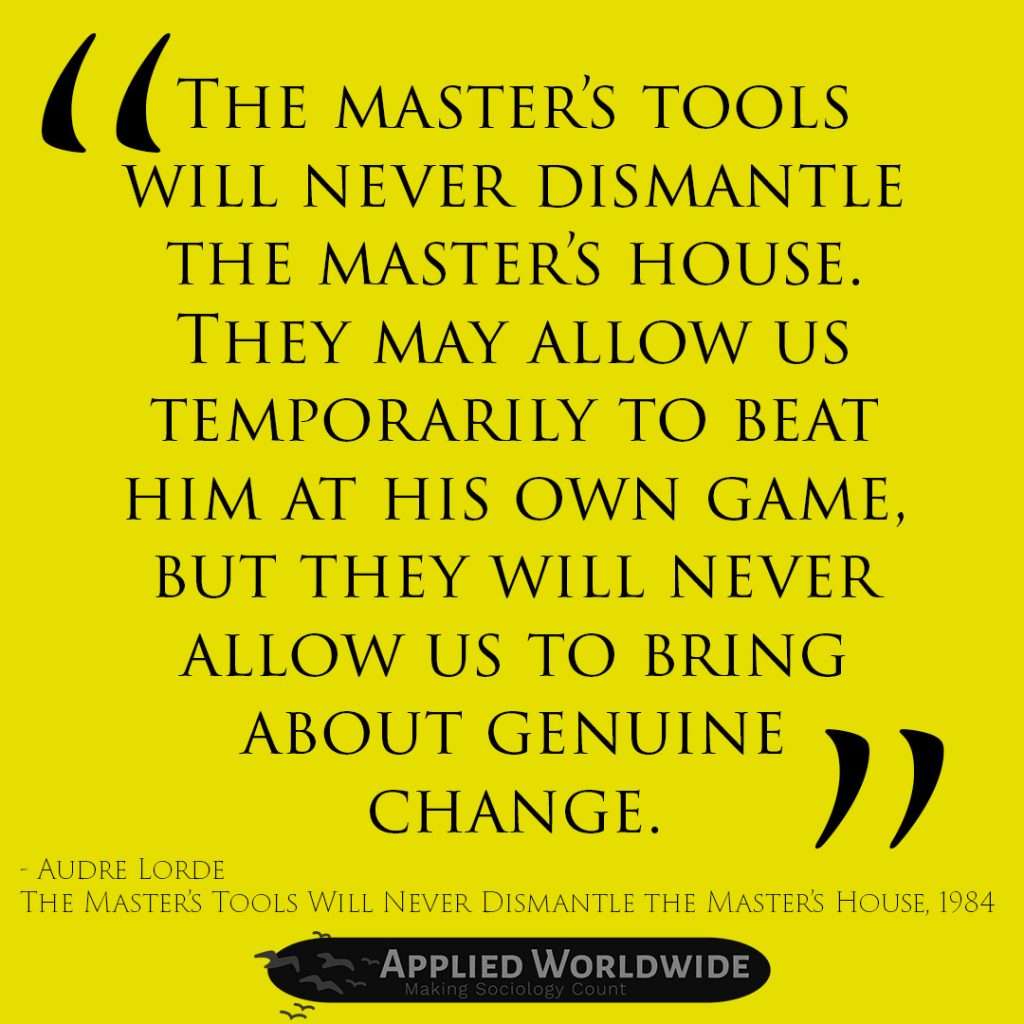
“The Master’s tools will never dismantle the Master’s house. They may allow us temporarily to beat him at his own game, but they will never allow us to bring about genuine change.”
– Audre Lorde, The Master’s Tools Will Never Dismantle the Master’s House, 1984
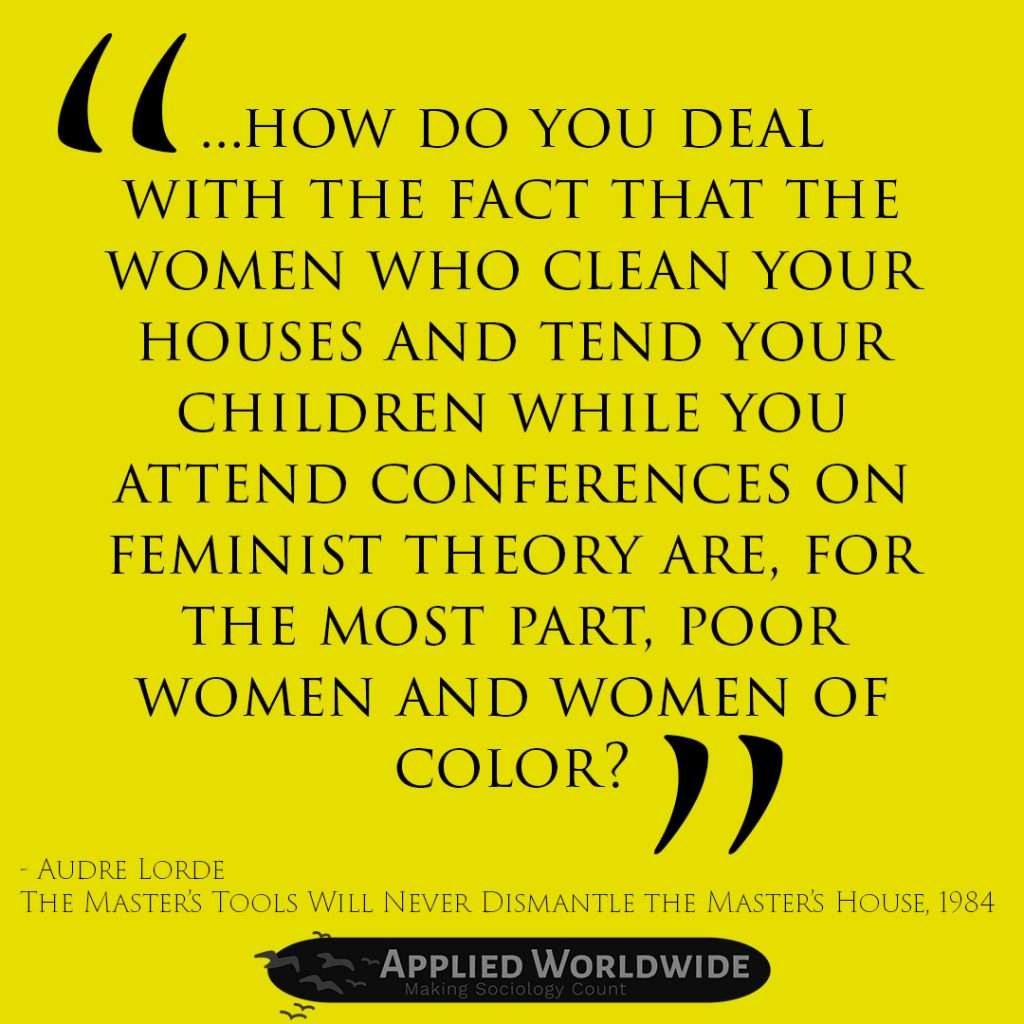
“…how do you deal with the fact that the women who clean your houses and tend to your children while you attend conferences on feminist theory are, for the most part, poor women and women of color?”
– Audre Lorde, The Master’s Tools Will Never Dismantle the Master’s House, 1984
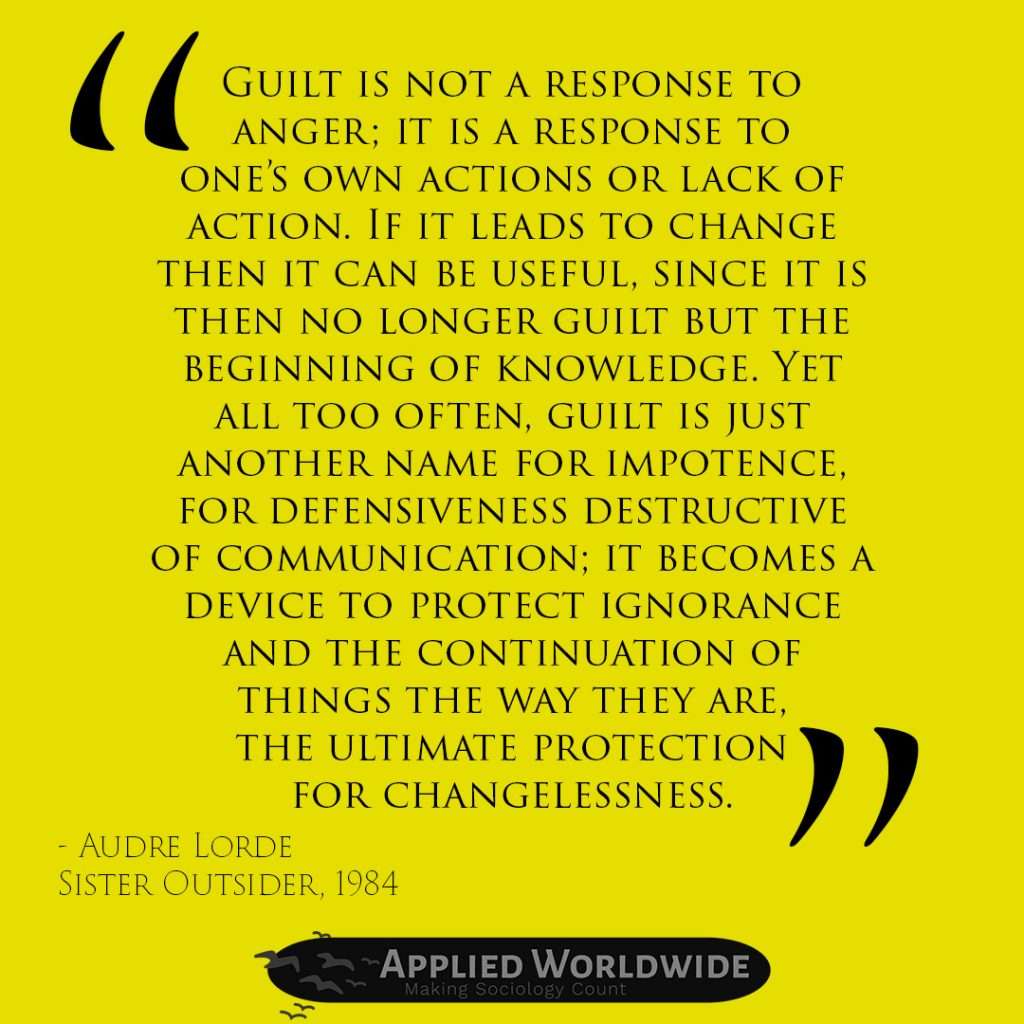
“Guilt is not a response to anger; it is a response to one’s own actions or lack of action. If it leads to change then it can be useful, since it is then no longer guilt but the grinning of knowledge. Yet, all too often, guilt is just another name for impotence, for defensiveness destructive of communication; it becomes a device to protect ignorance and the continuation of things they way they are, the ultimate protection for changelessness.”
– Audre Lorde, Sister Outside, 1984
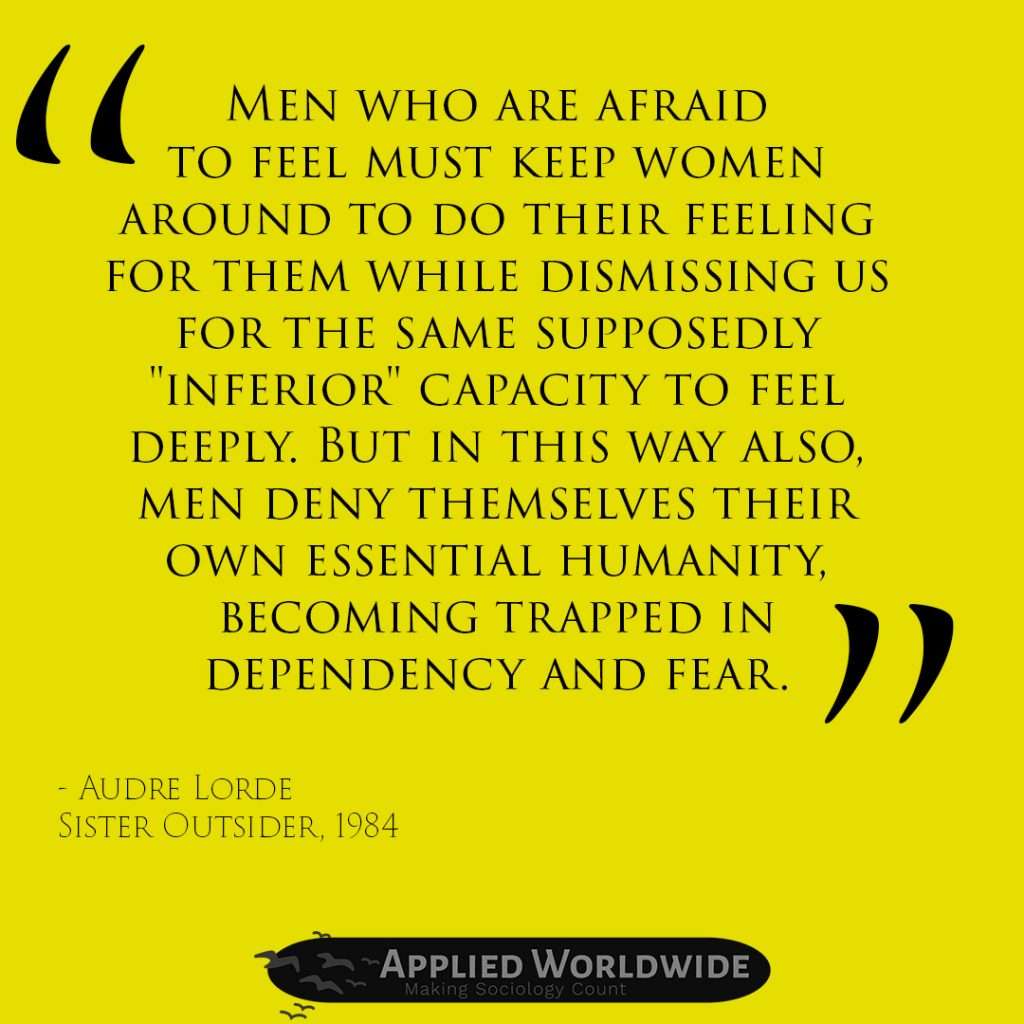
“Men who are afraid to feel must keep women around to do their feelings for them while dismissing us for the same supposedly “inferior” capacity to feel deeply. But in this way also, men deny themselves their own essential humanity, becoming trapped in dependency and fear.”
– Audre Lorde, Sister Outside, 1984
Harriet Martineau
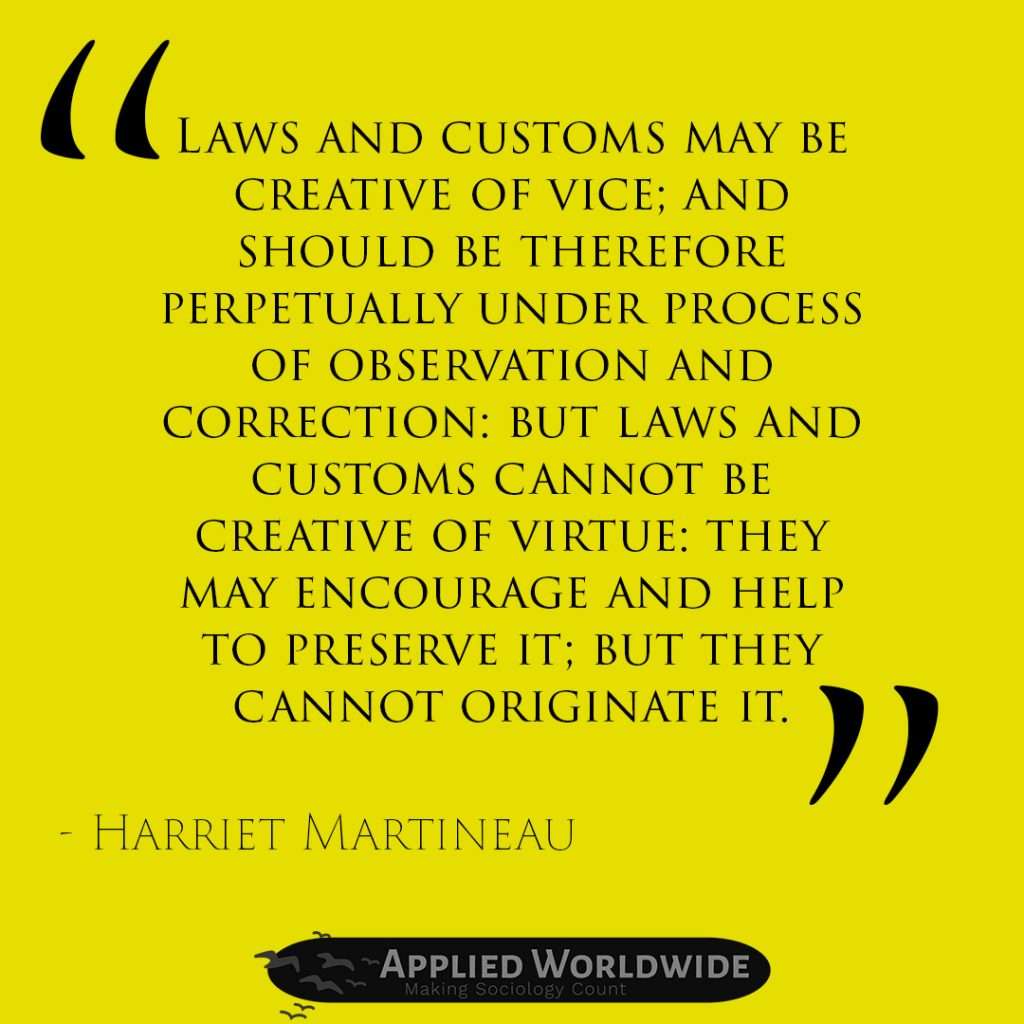
“Laws and customs may be creative of vice; and should be therefore perpetually under process of observation and correction: but laws and customs cannot be creative of virtue: they may encourage and help to preserve it; but they cannot originate it.”
– Harriet Martineau
Karl Marx and Friedrich Engels

“The division of labour inside a nation leads at first to the separation of industrial and commercial from agricultural labour, and hence to the separation of town and country and to the conflict of their interests.”
– Karl Marx and Friedrich Engels, The German Ideology, 1984
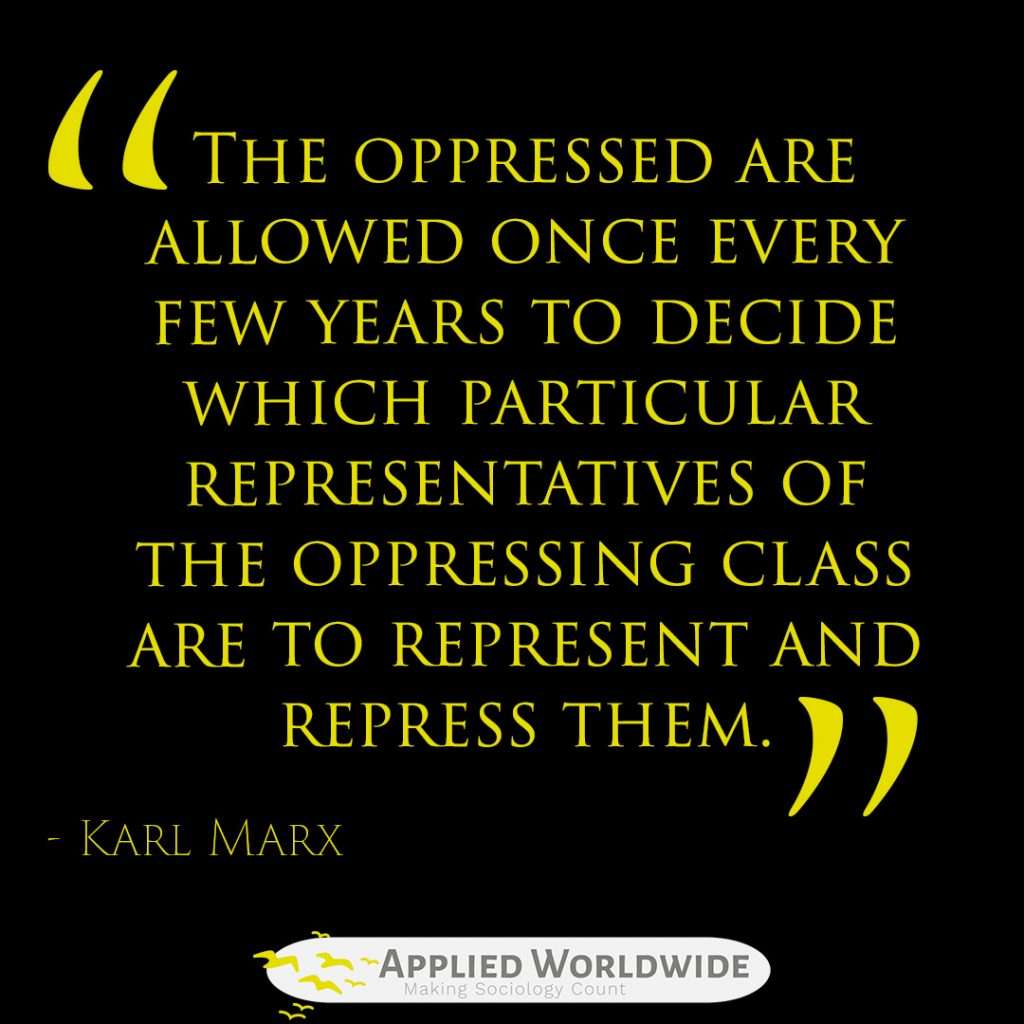
“The oppressed are allowed once every few years to decide which particular representatives of the oppressing class are to represent and repress them.”
– Karl Marx
C. Wright Mills
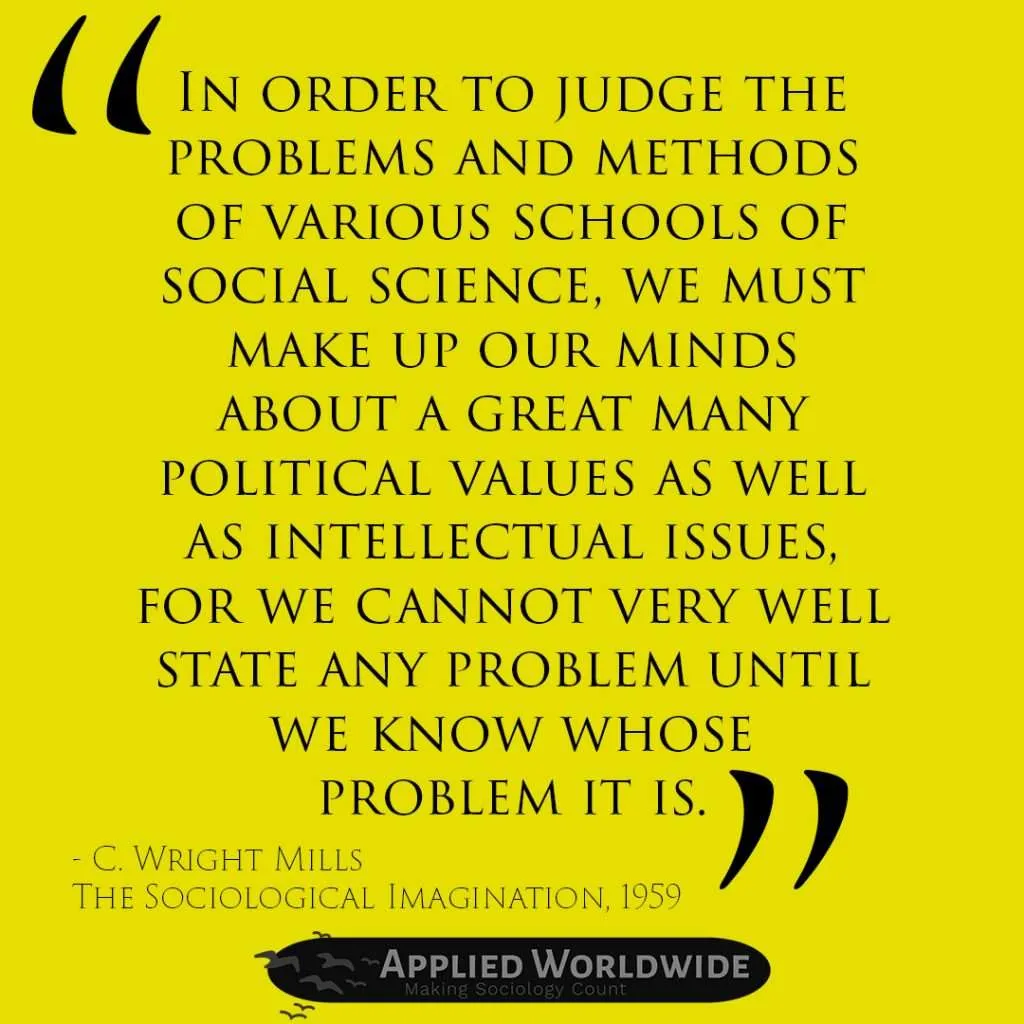
“In order to judge the problems and methods of various schools of social science, we must make up our minds about a great many political values as well as intellectual issues, for we cannot very well state any problem until we know whose problem it is.”
– C. Wright Mills, The Sociological Imagination, 1959
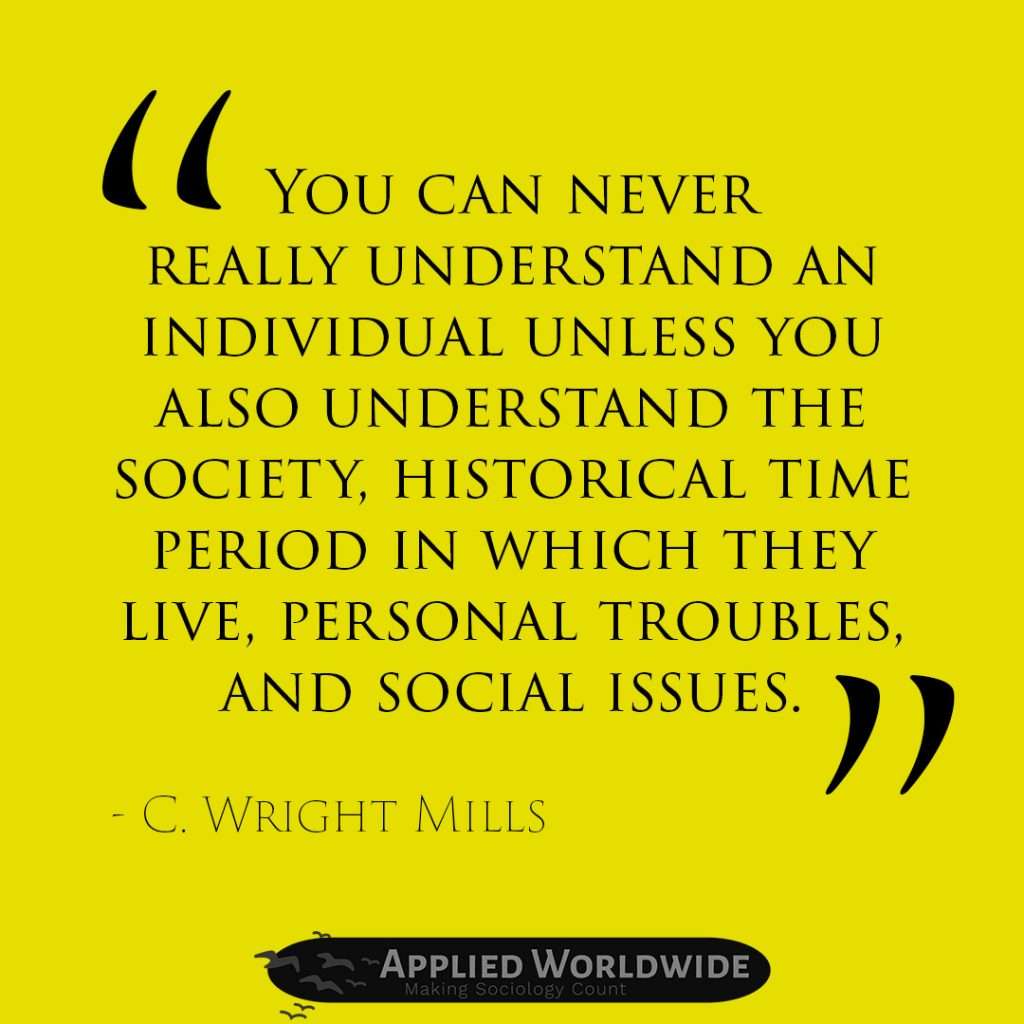
“You can never really understand an individual unless you also understand the society, historical time period in which they live, personal troubles, and social issues.”
– C. Wright Mills
Georg Simmel
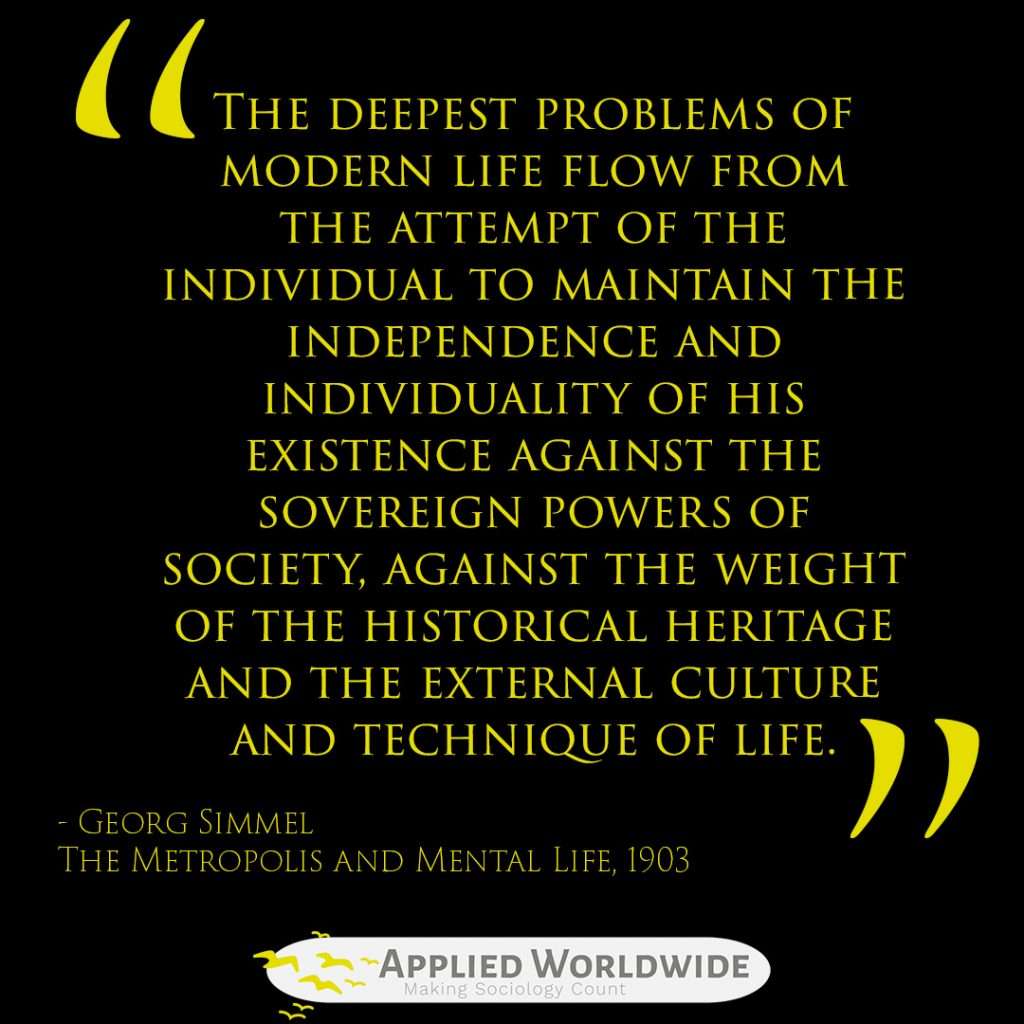
“The deepest problems of modern life flow from the attempt of the individual to maintain the independence and individuality of his existence against the sovereign powers of society, against the weight of the historical heritage and the external cultural and technique of life.”
– Georg Simmel, The Metropolis and Mental Life, 1903
Lester F. Ward

“Pure sociology gives mankind the means of self-orientation. It teaches man what he is and how he came to be so. With this information to start with he is in position to consider his future. With a clear comprehension of what constitutes achievement he is able to see what will constitute improvement. The purpose of applied sociology is to harmonized achievement with improvement.”
– Lester F. Ward, Applied Sociology, 1906

“In short, [matters of personal freedom] are the proper subjects of scientific investigation. The only science that can deal with them is sociology. Their study and solution belong to applied sociology.”
– Lester F. Ward, Applied Sociology, 1906
Max Weber
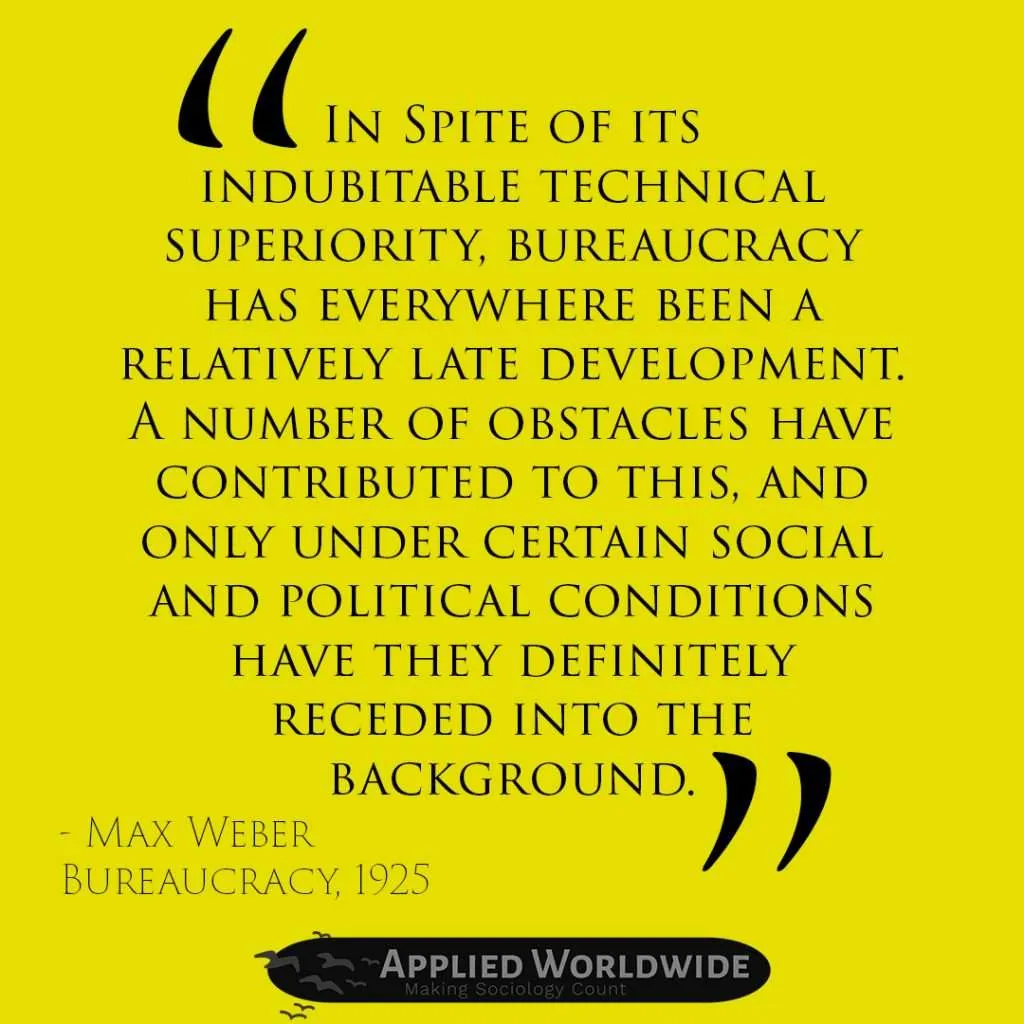
“In spite of its indubitable technical superiority, bureaucracy has everywhere been a relatively late development. A number of obstacles have contributed to this, and only under certain social and political conditions have they definitely receded into the background.”
– Max Weber, Bureaucracy, 1925
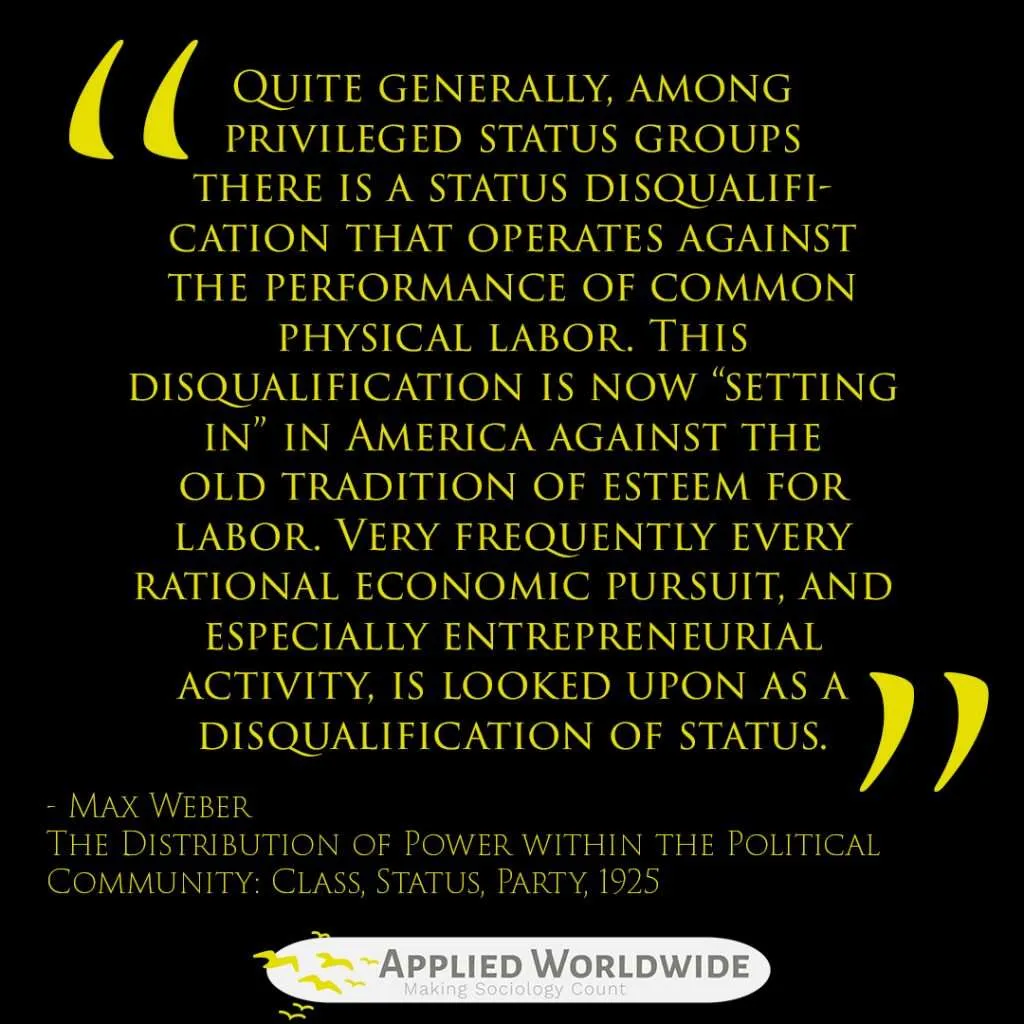
“Quite generally, among privileged status groups there is a status disqualification that operations against the performance of common physical labor. This disqualification is now “setting in” in American against the old tradition of esteem for labor. Very recently every rational economic pursuit, and especially entrepreneurial activity, is looked upon as a disqualification of status.”
– Max Weber, The Distribution of Power within the Political Community: Class, Status, Party, 1925
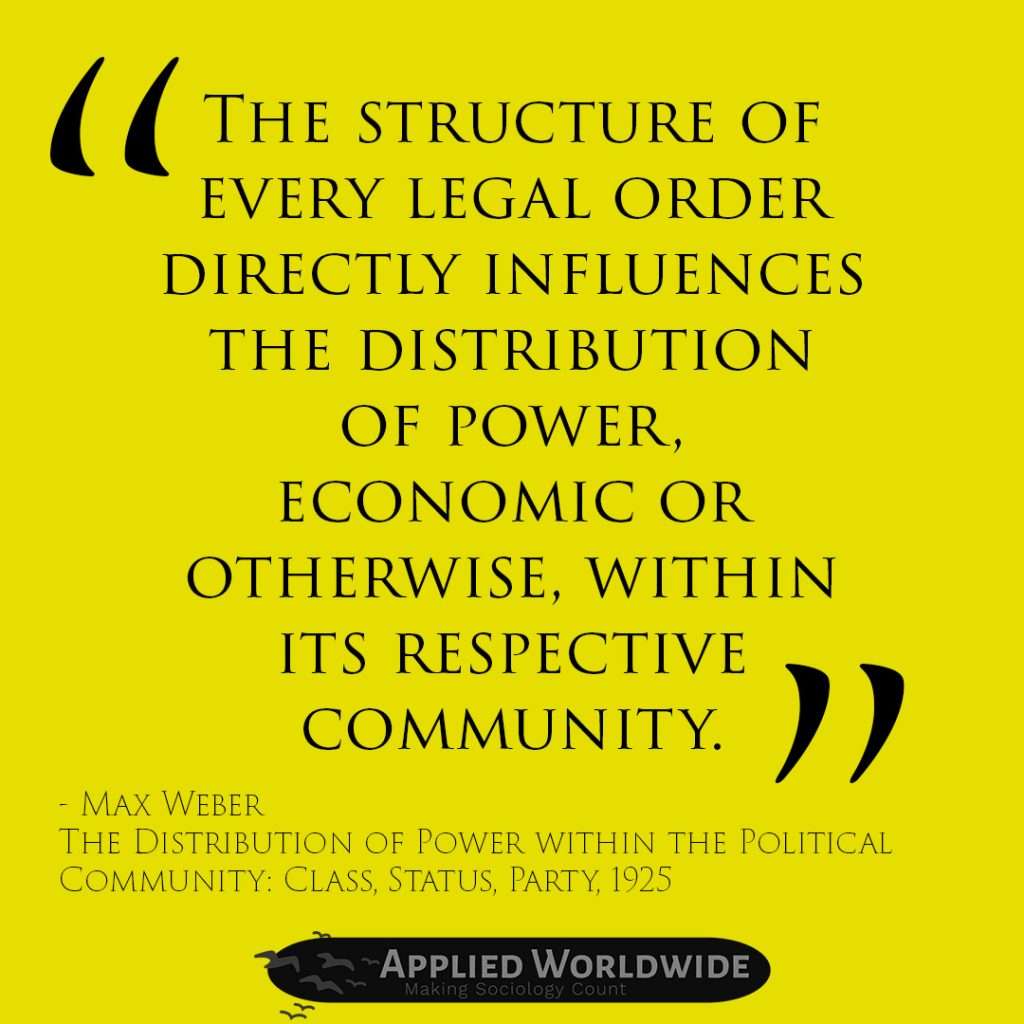
“The Structure of every legal order directly influences the distribution of power, economic or otherwise, within its respective community.”
– Max Weber, The Distribution of Power within the Political Community: Class, Status, Party, 1925
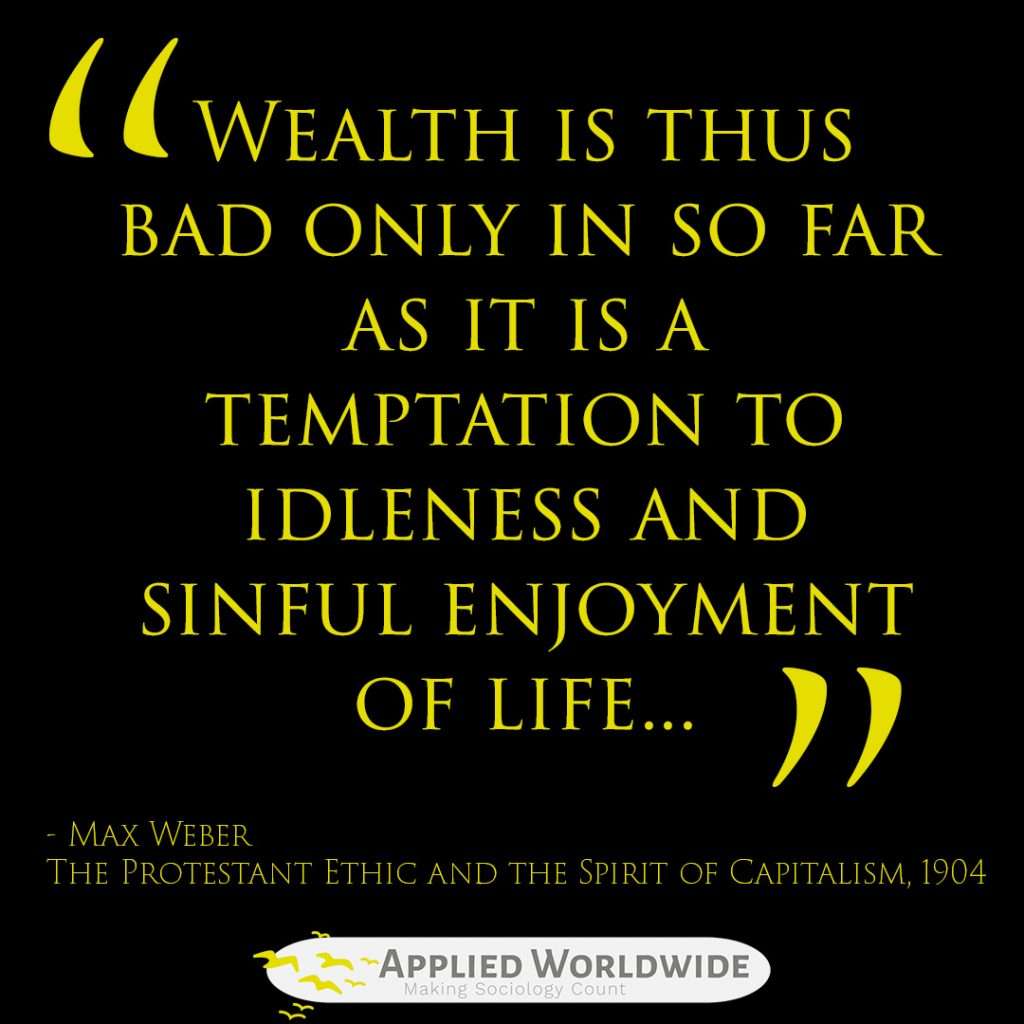
“Wealth is thus bad only in so far as it is a temptation to idleness and sinful enjoyment of life…”
– Max Weber, The Protestant Ethic and the Spirit of Capitalism, 1904
Sociology Terms and Definitions: Graphics for Social Media







